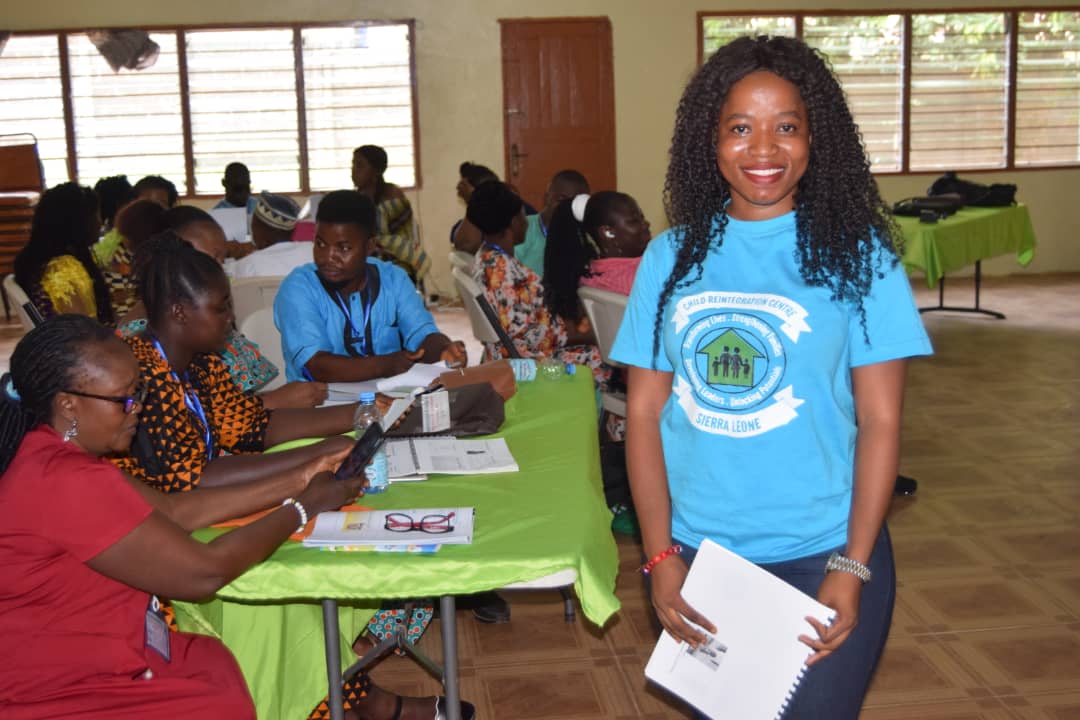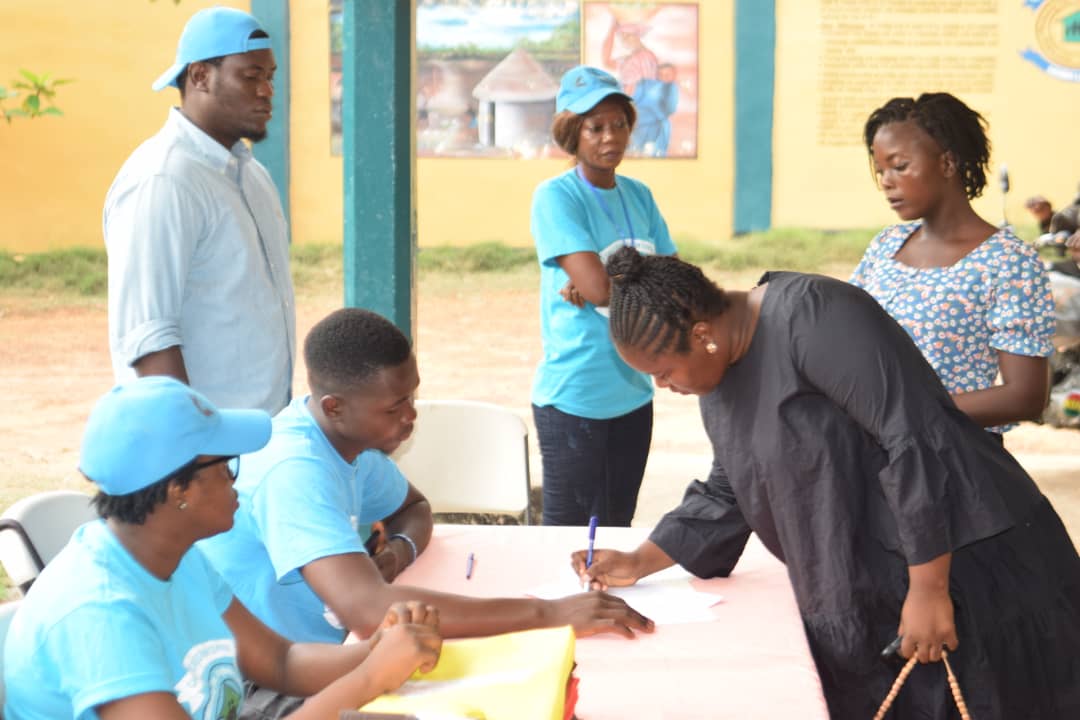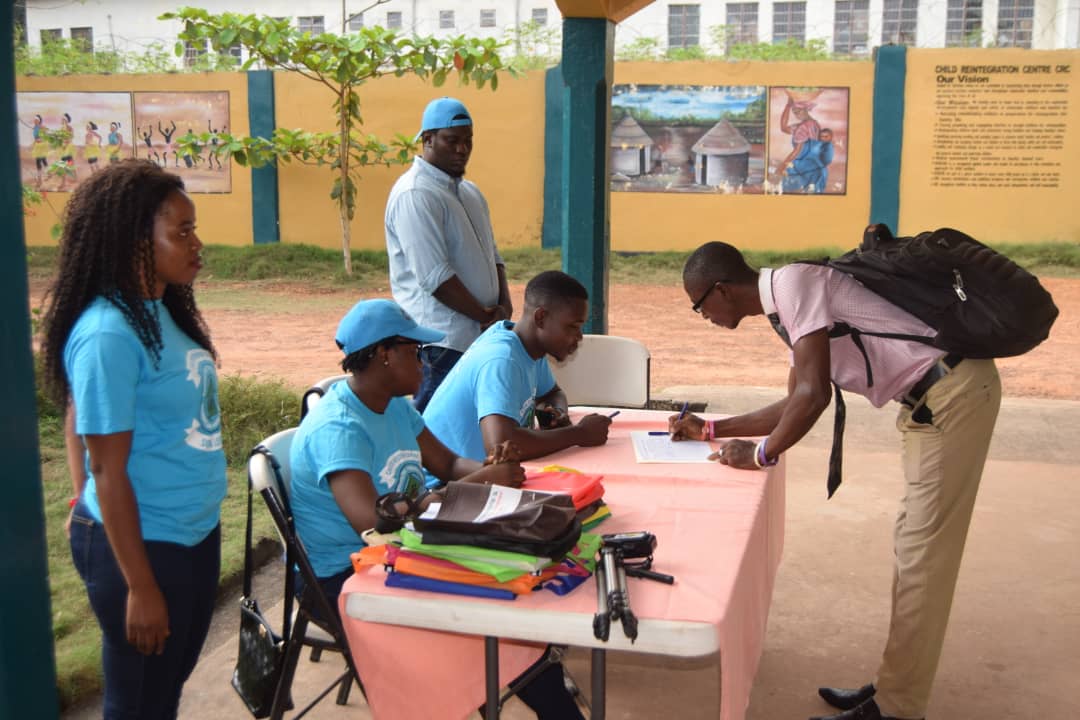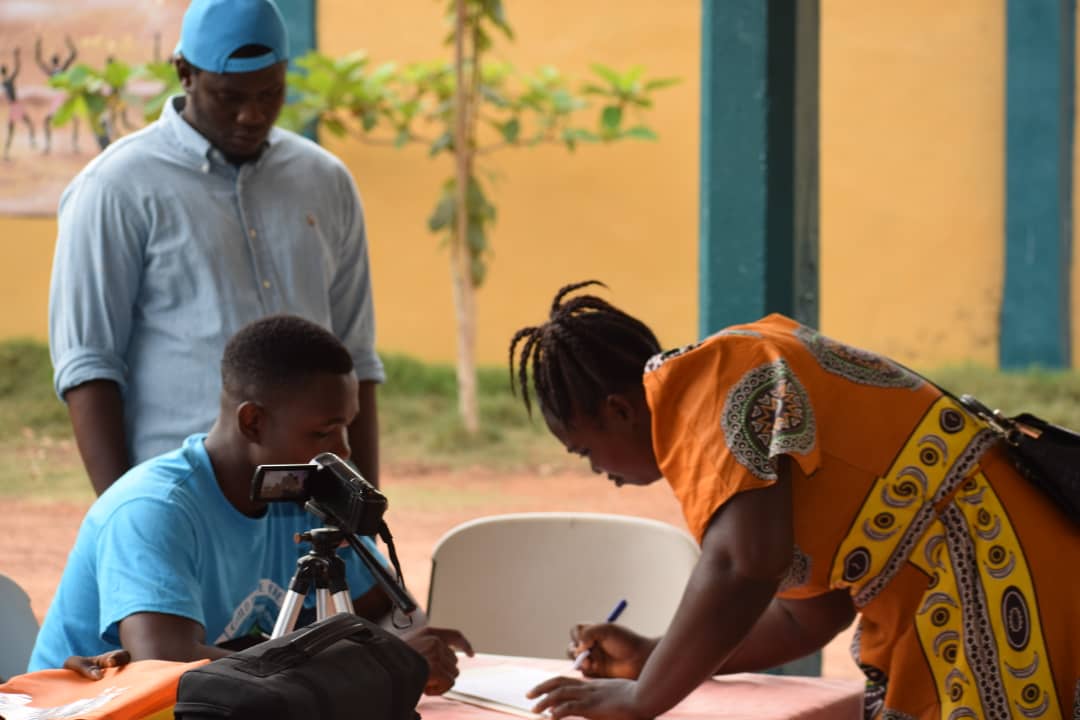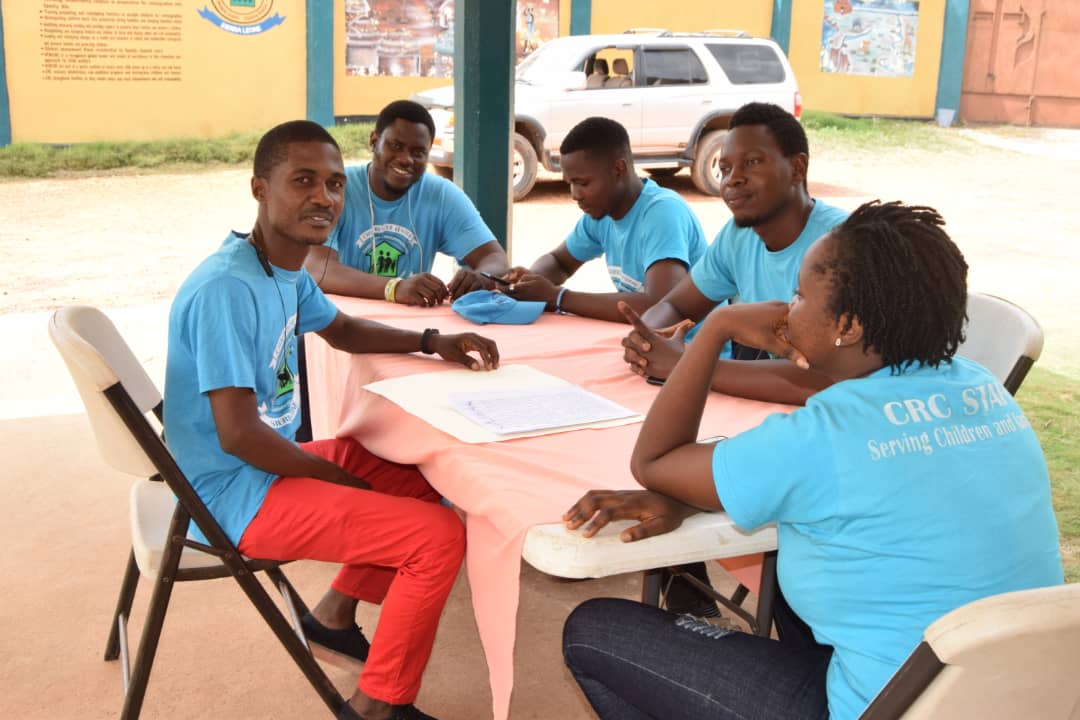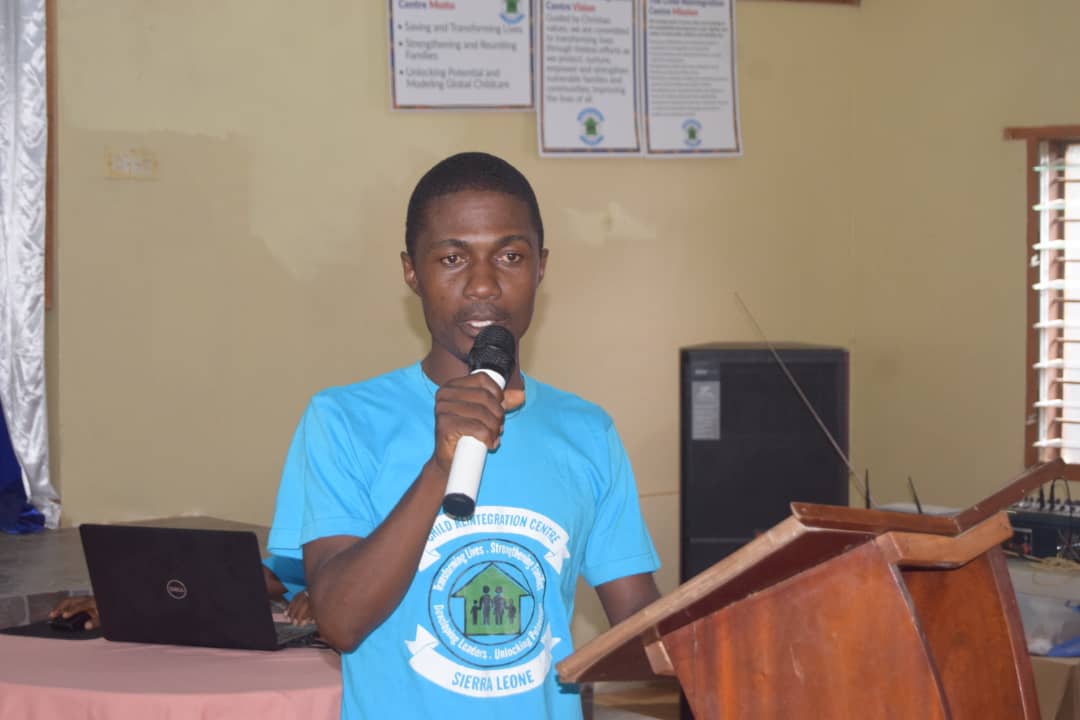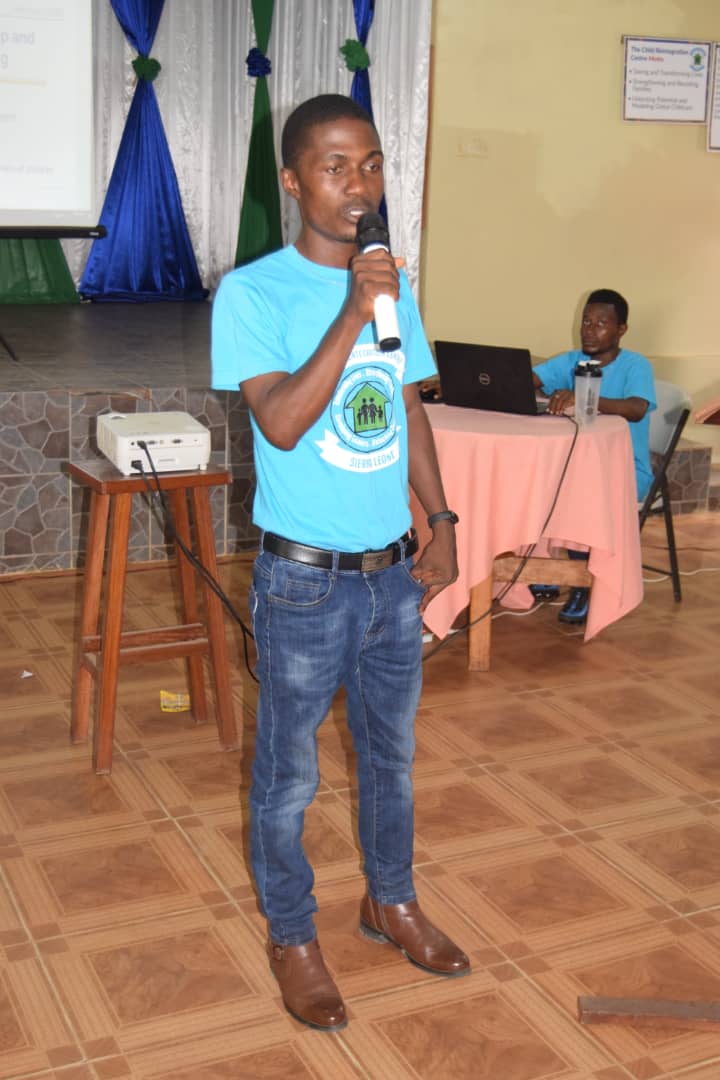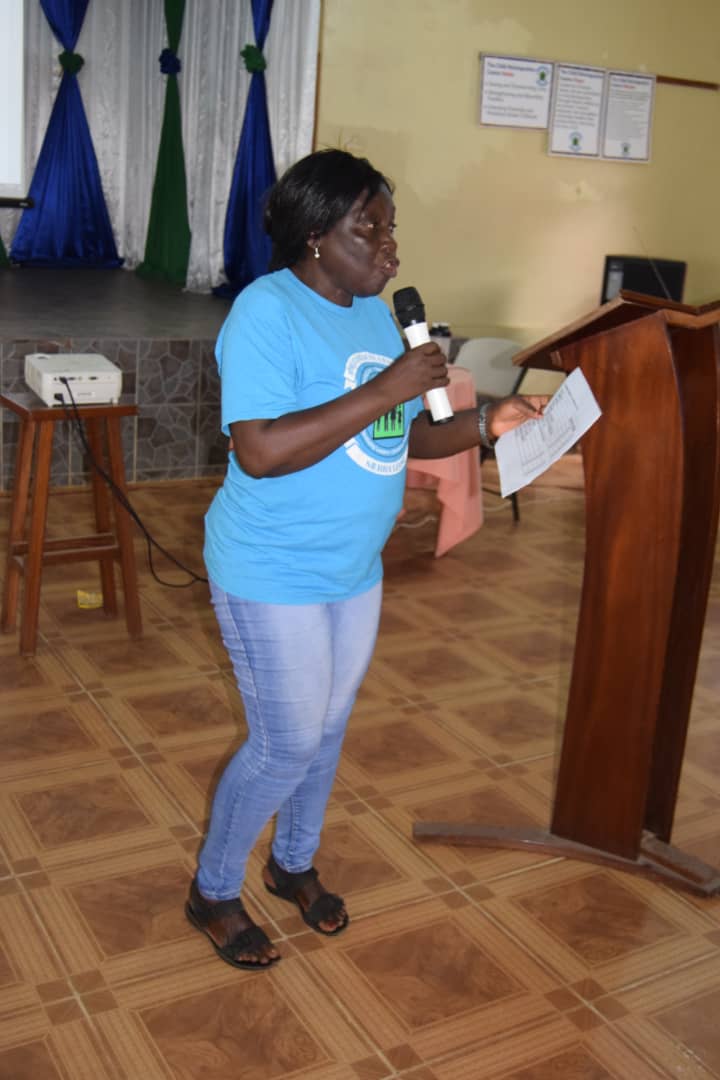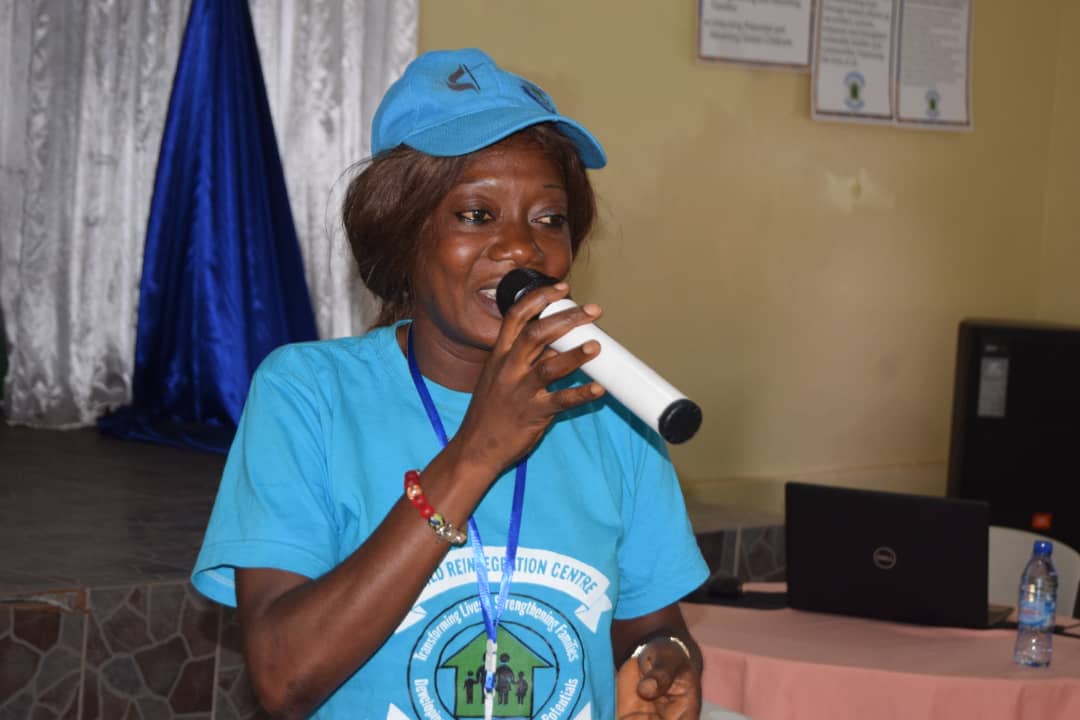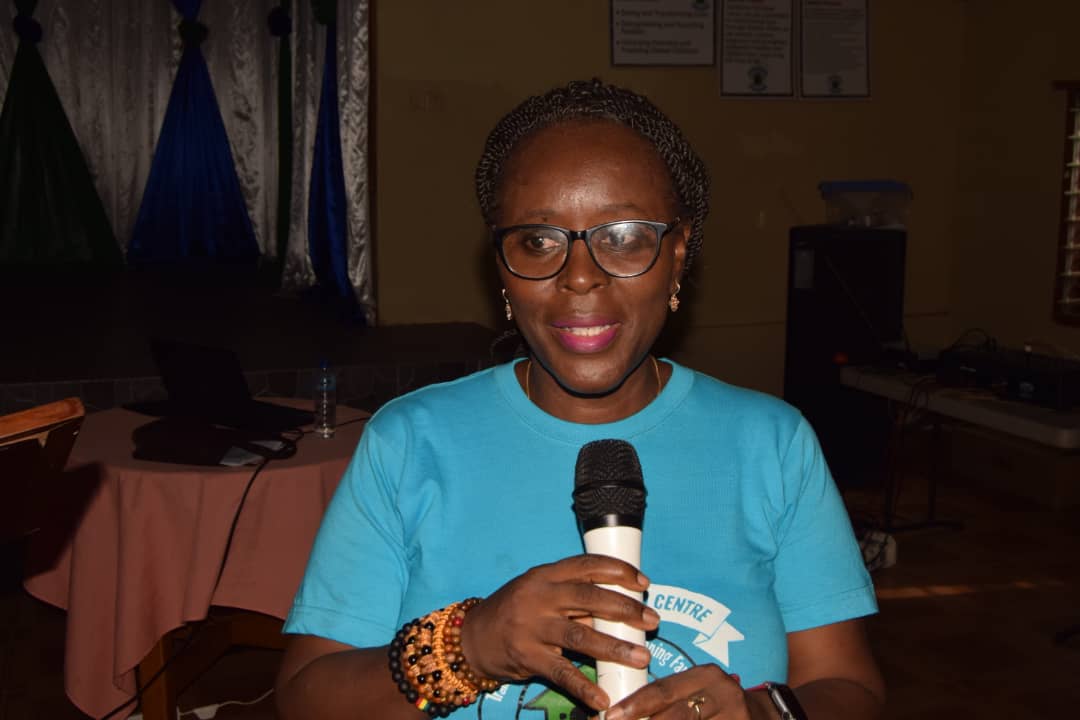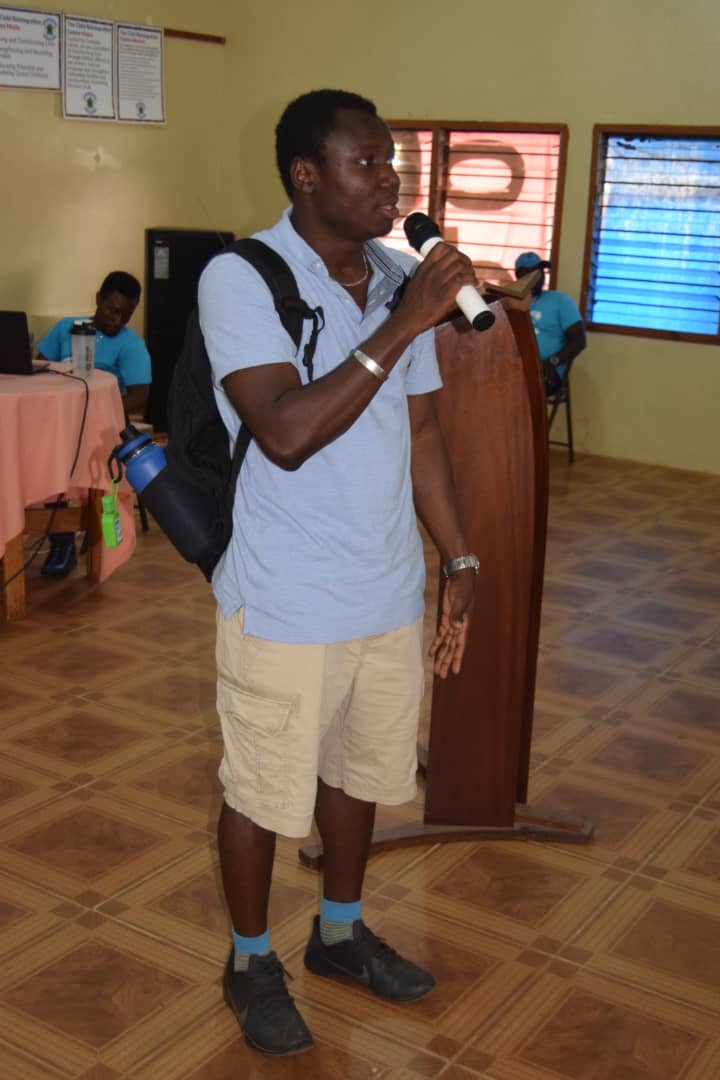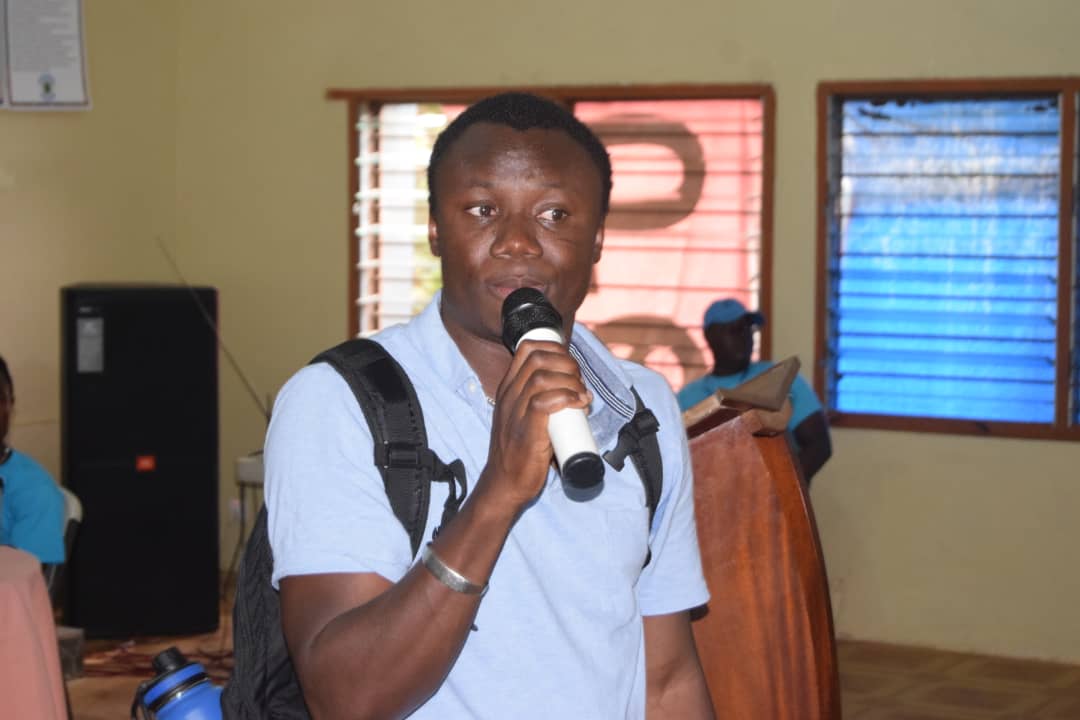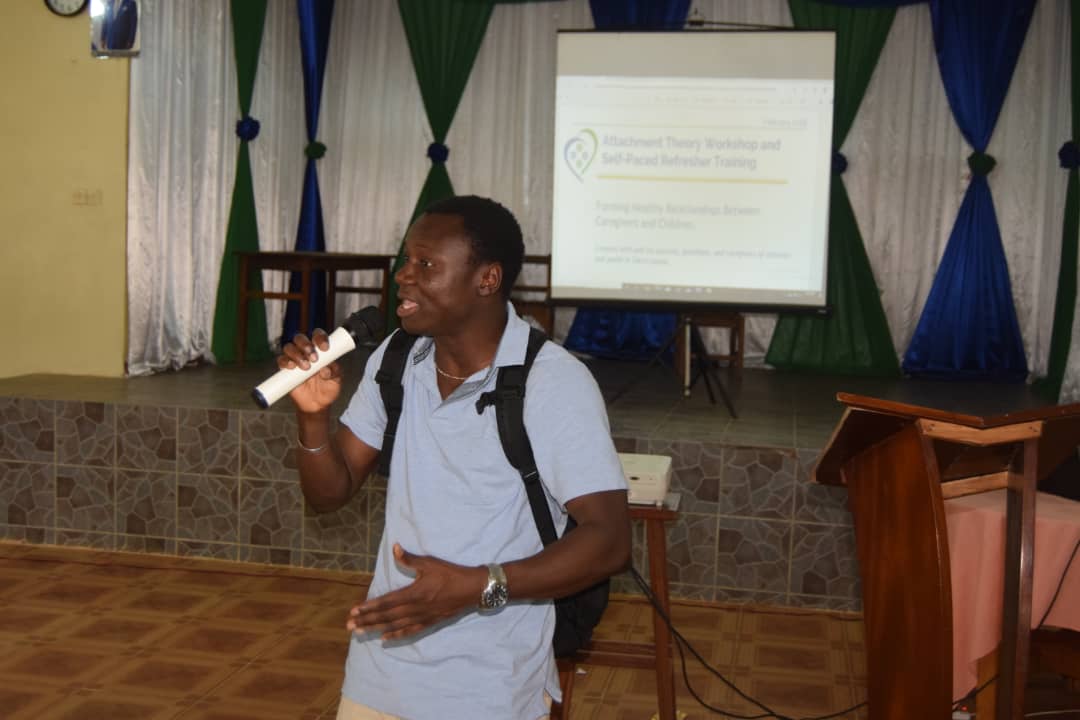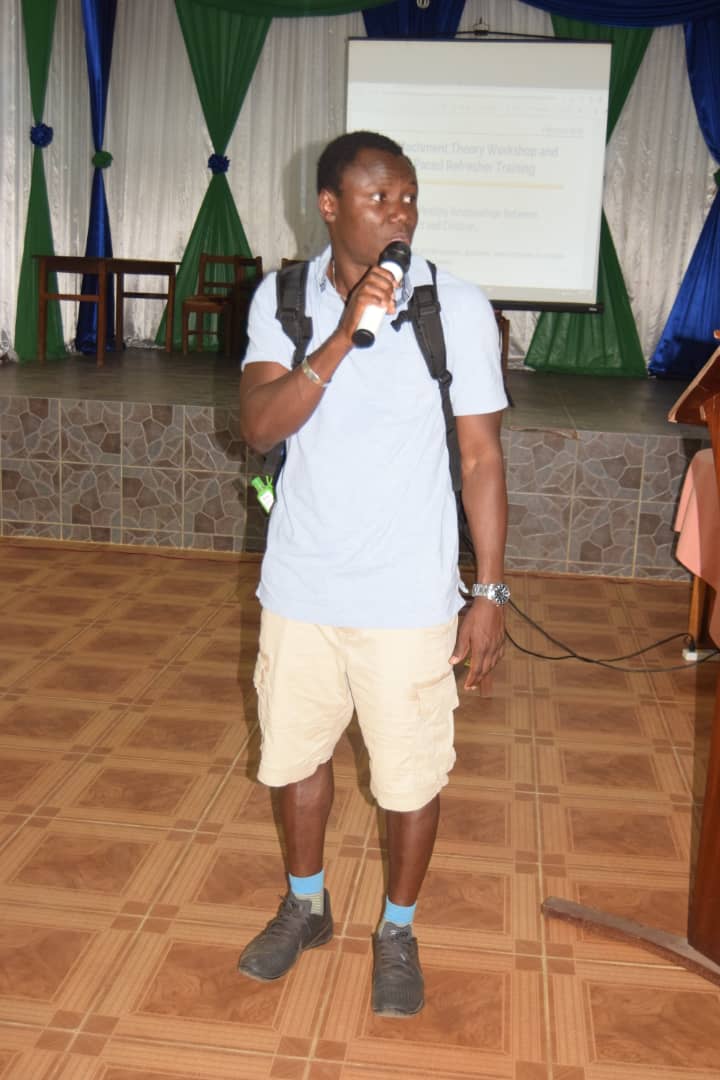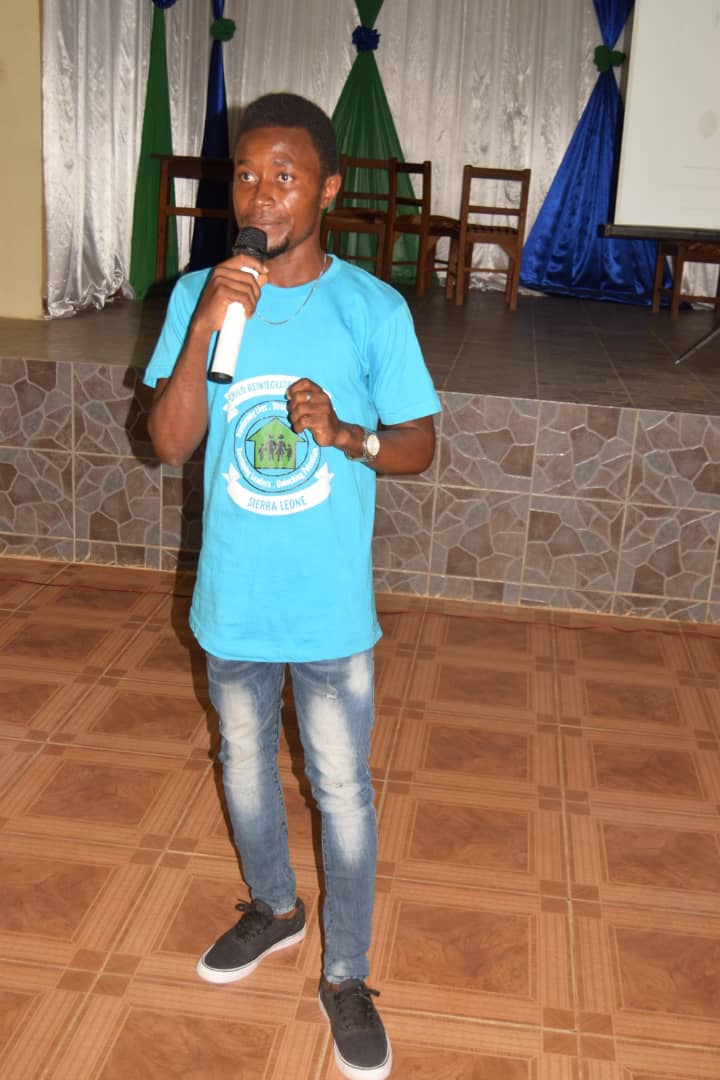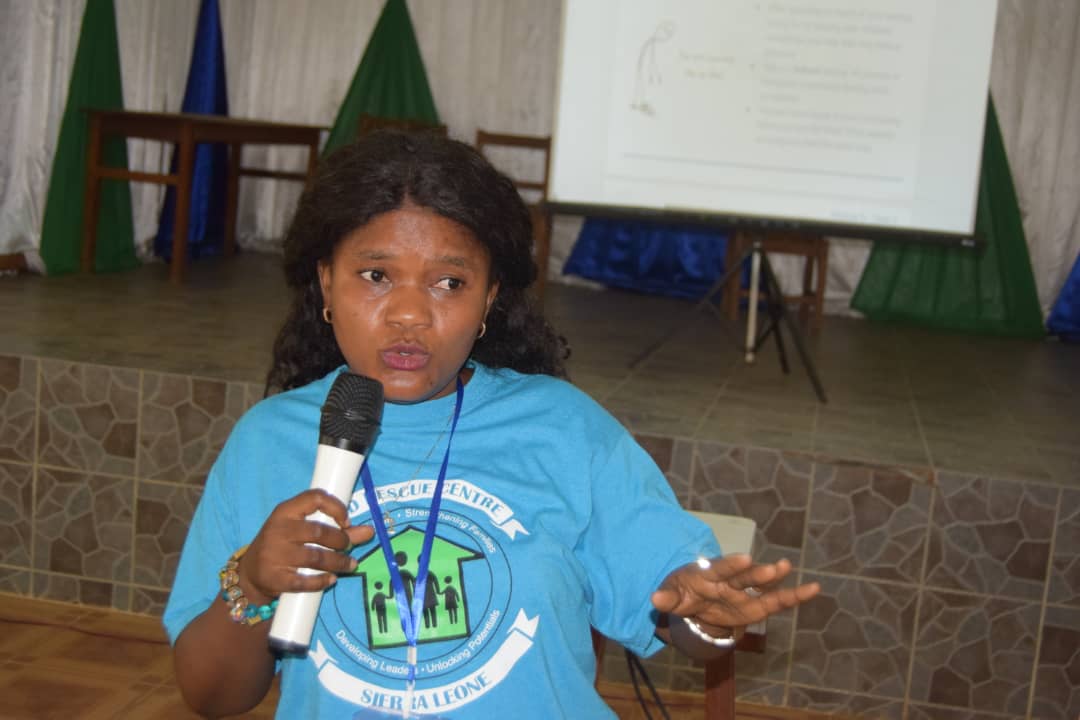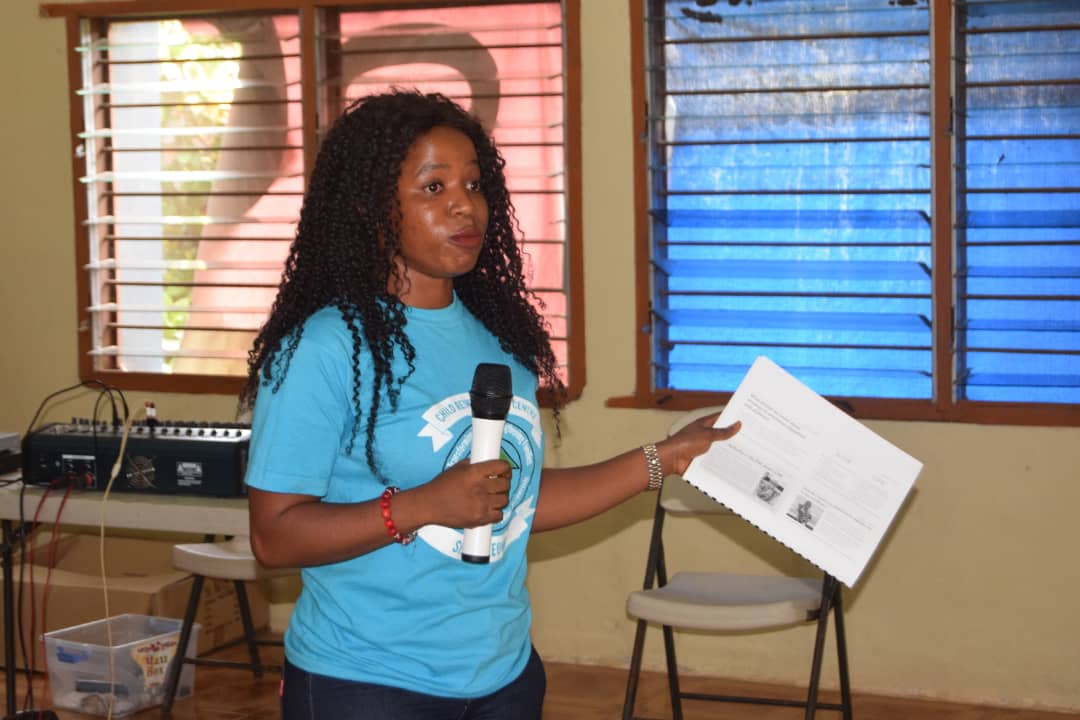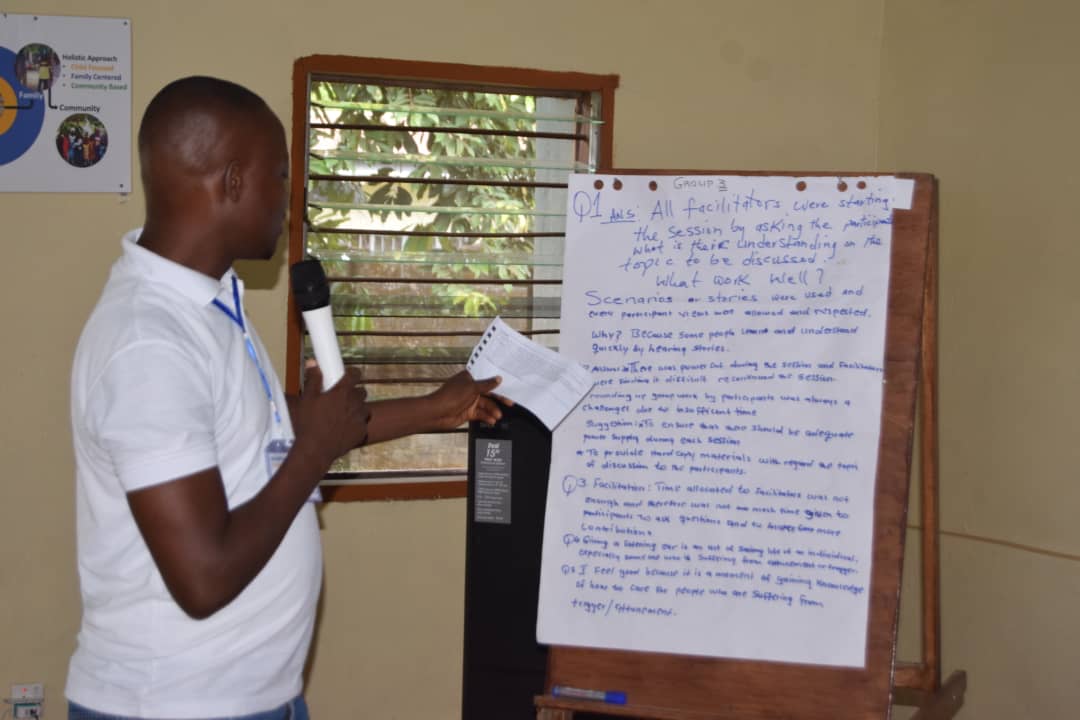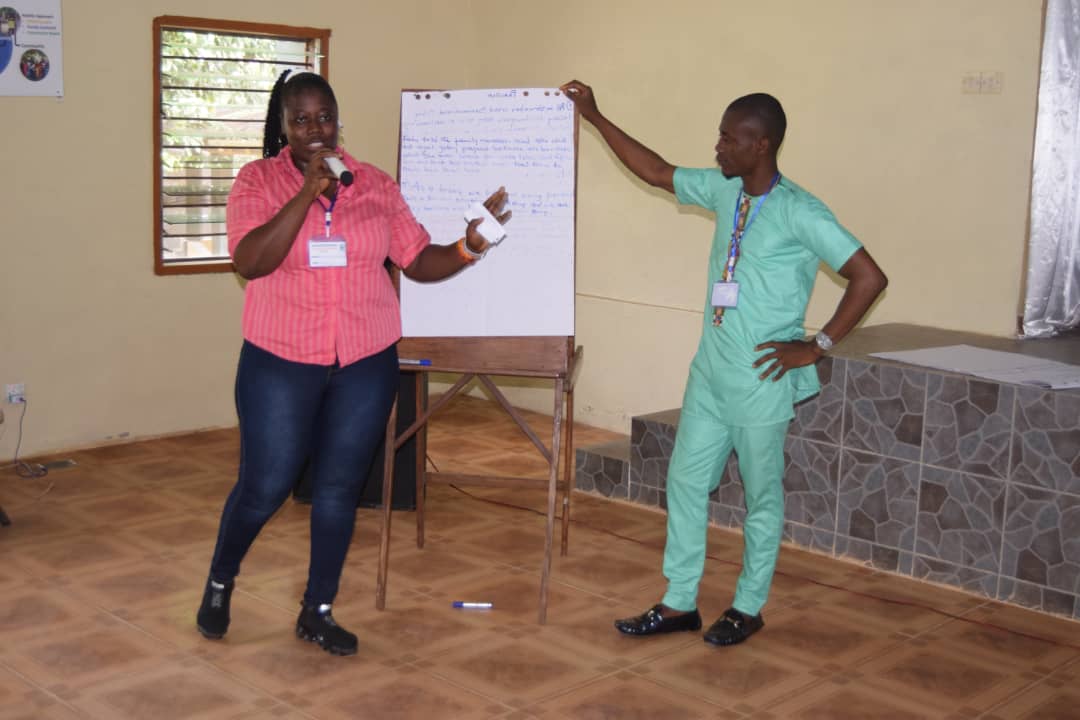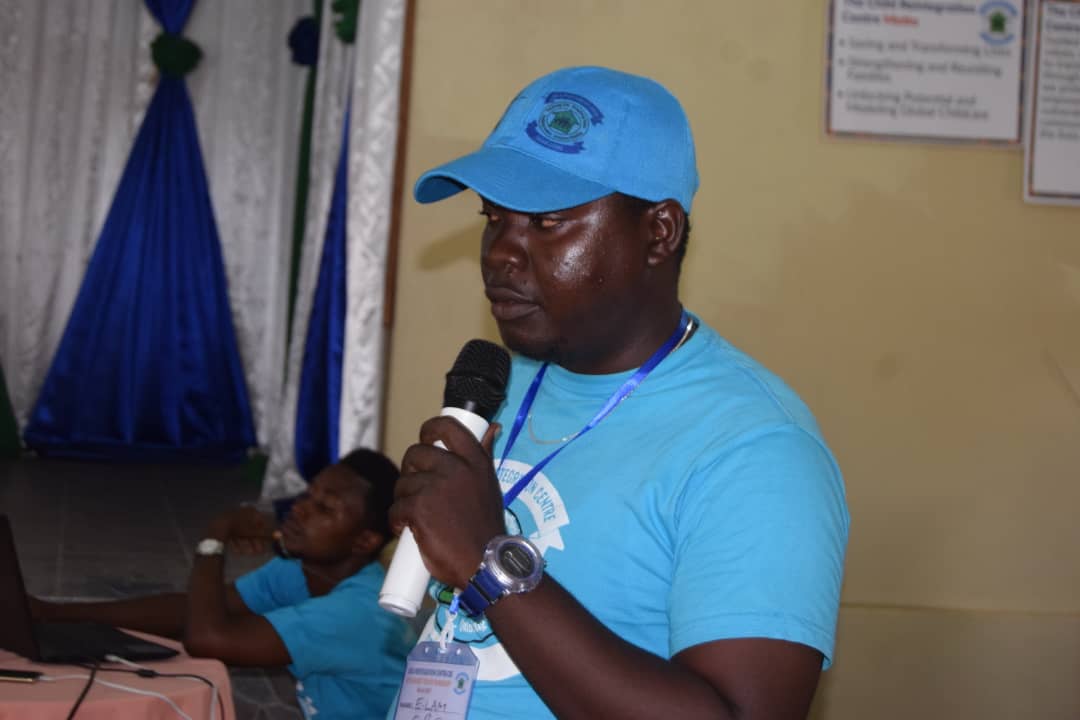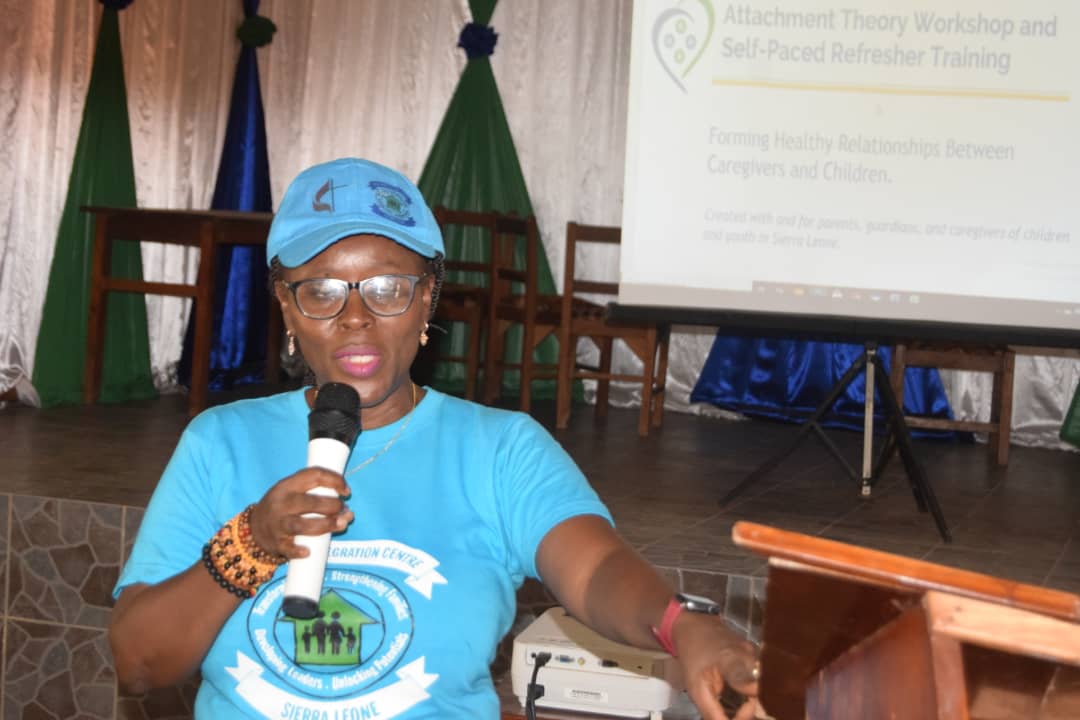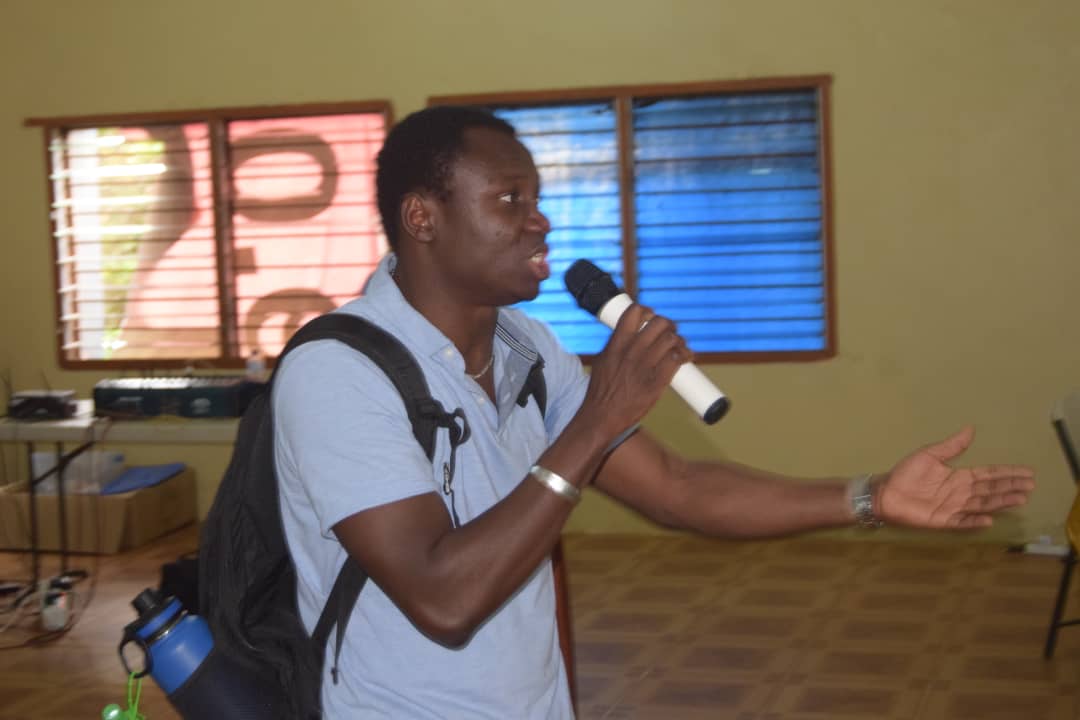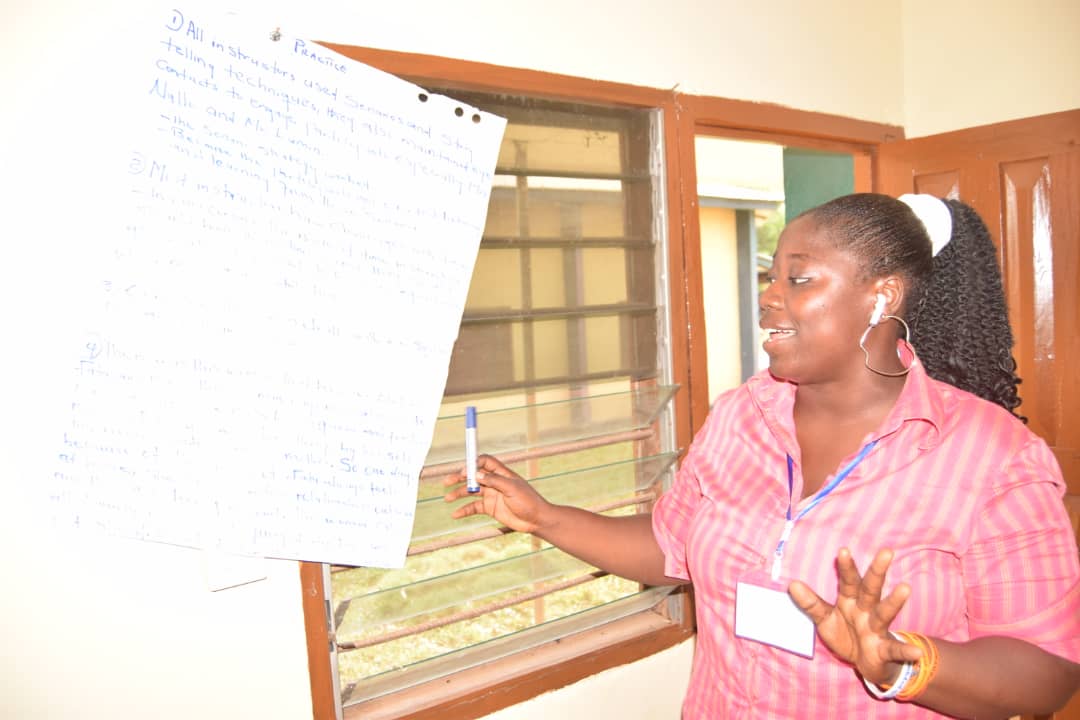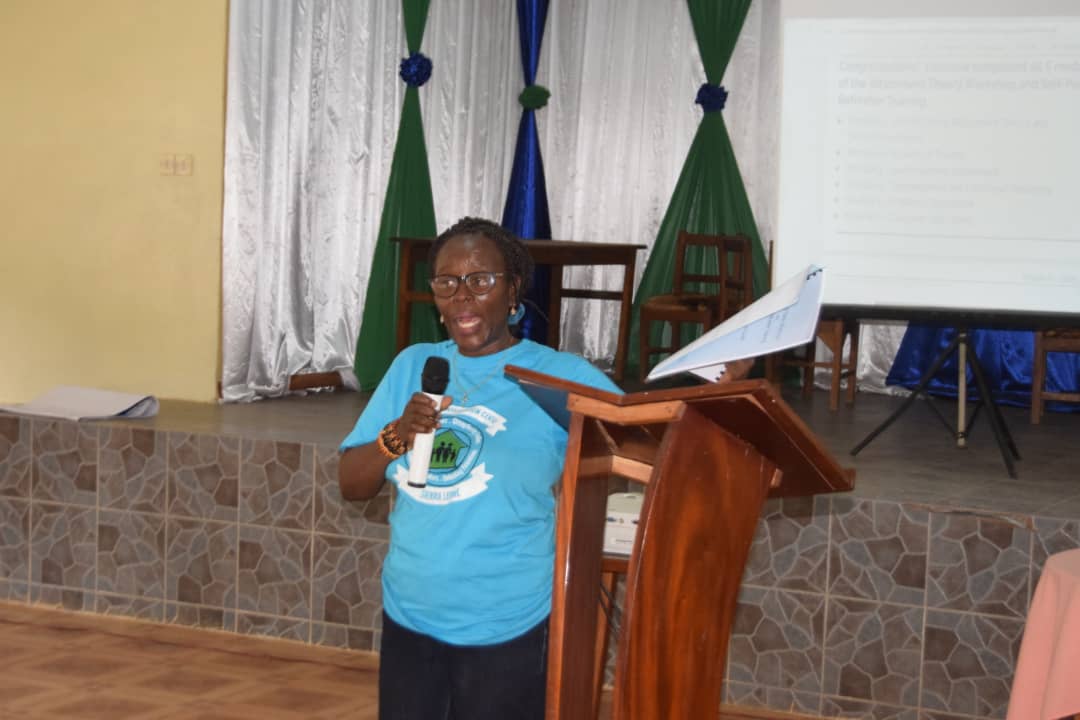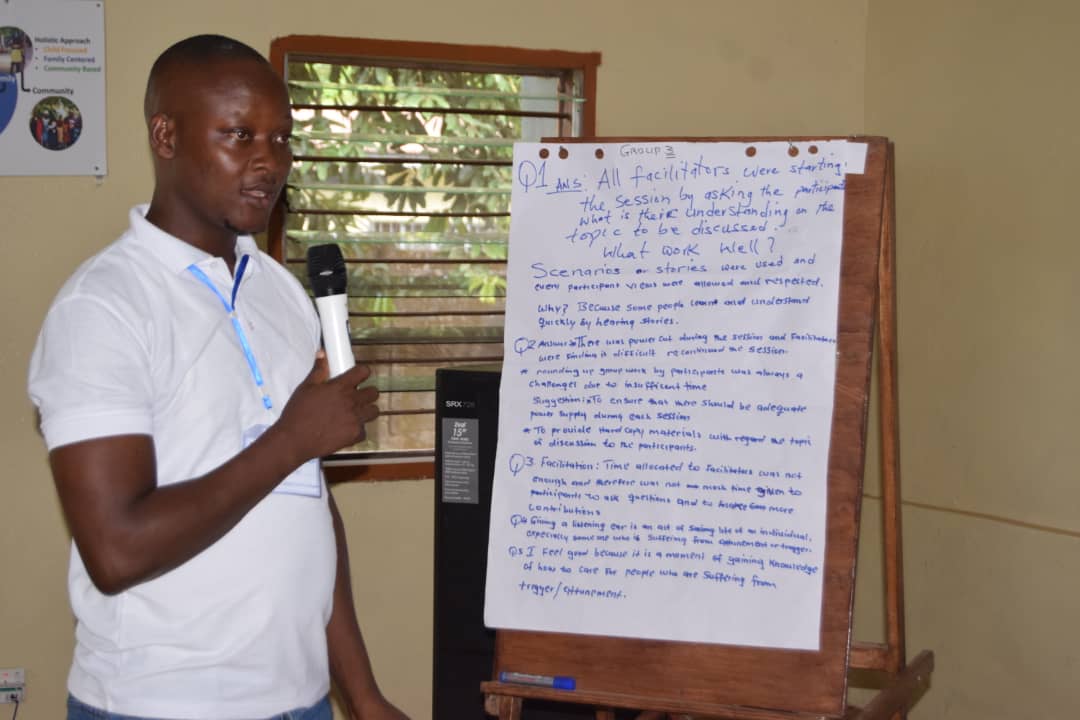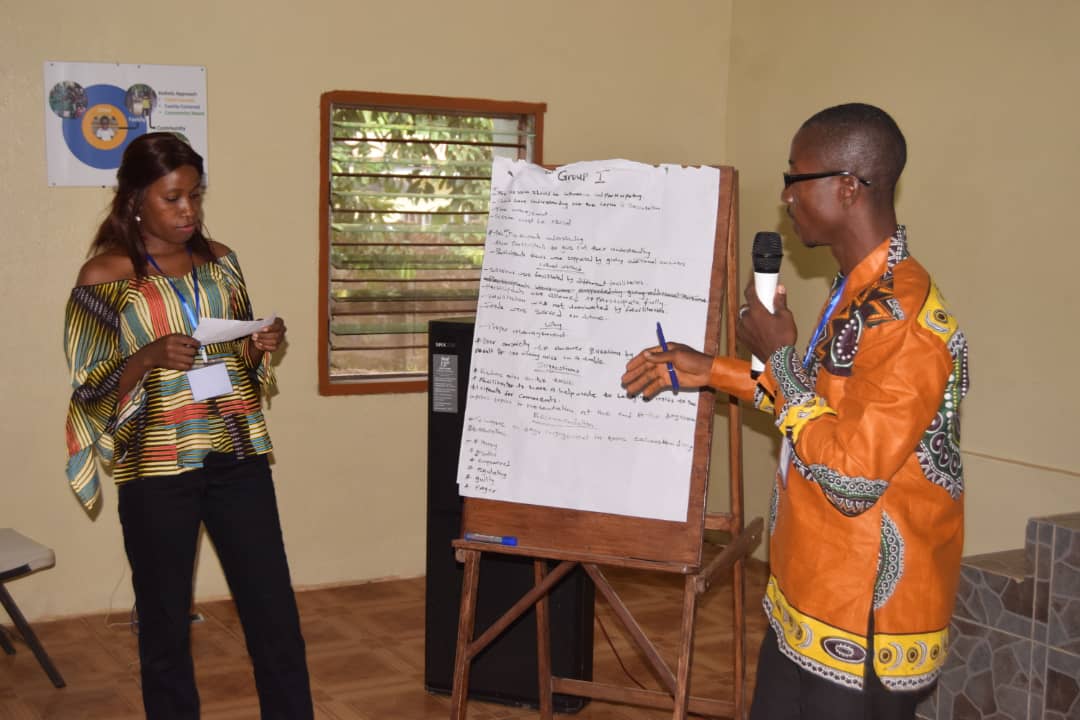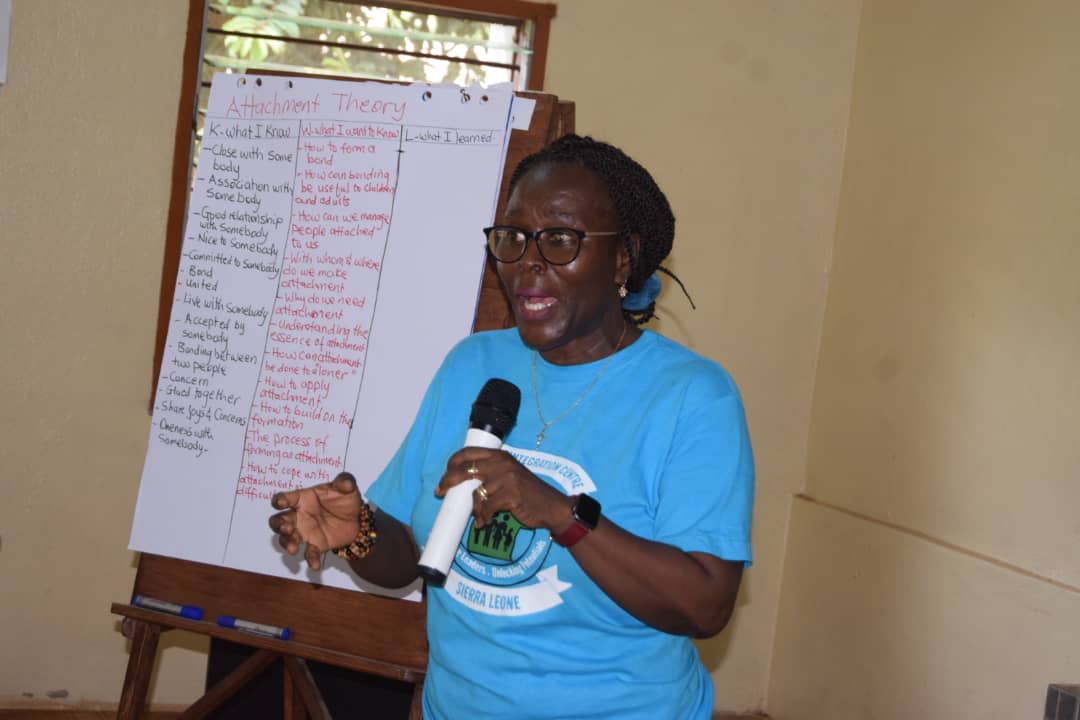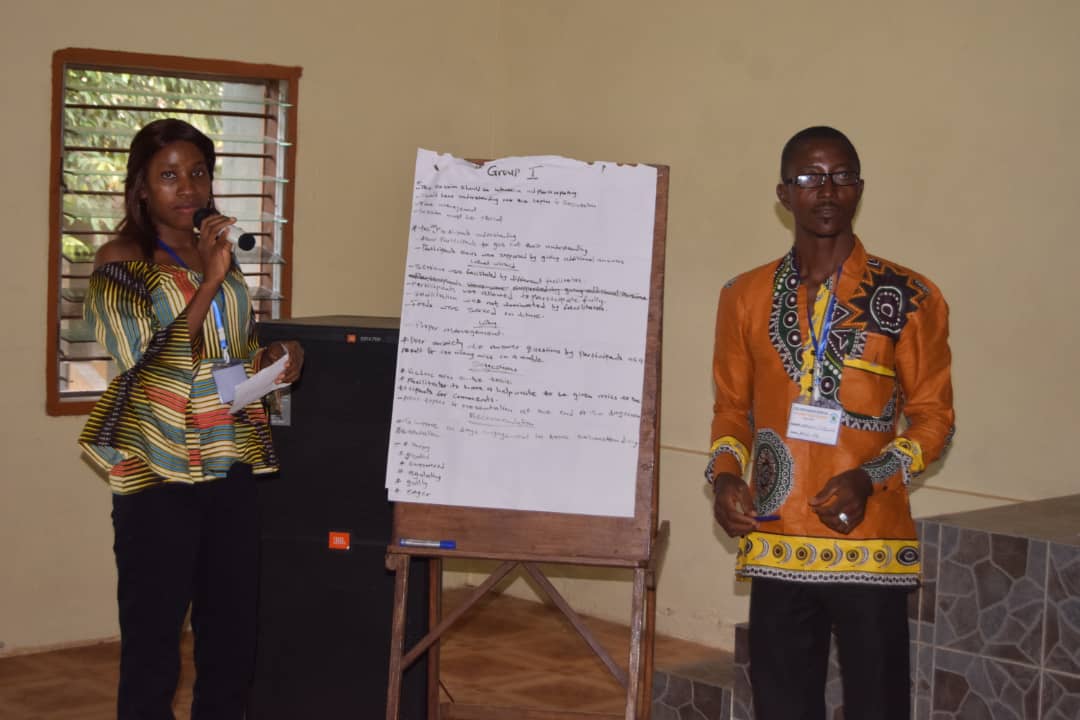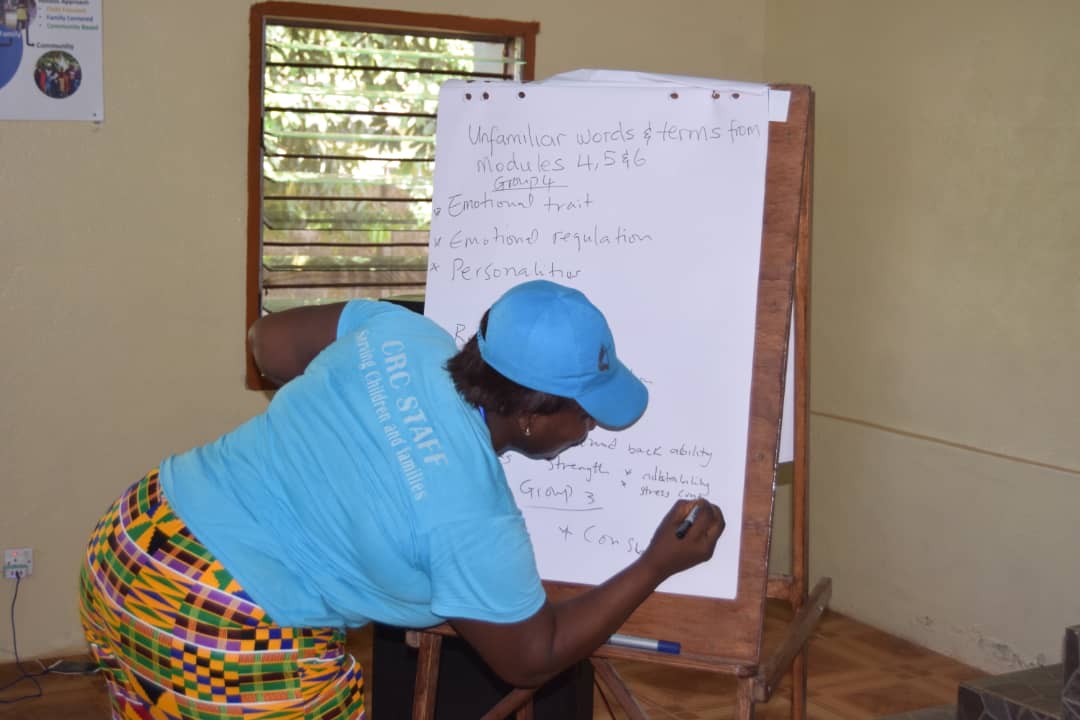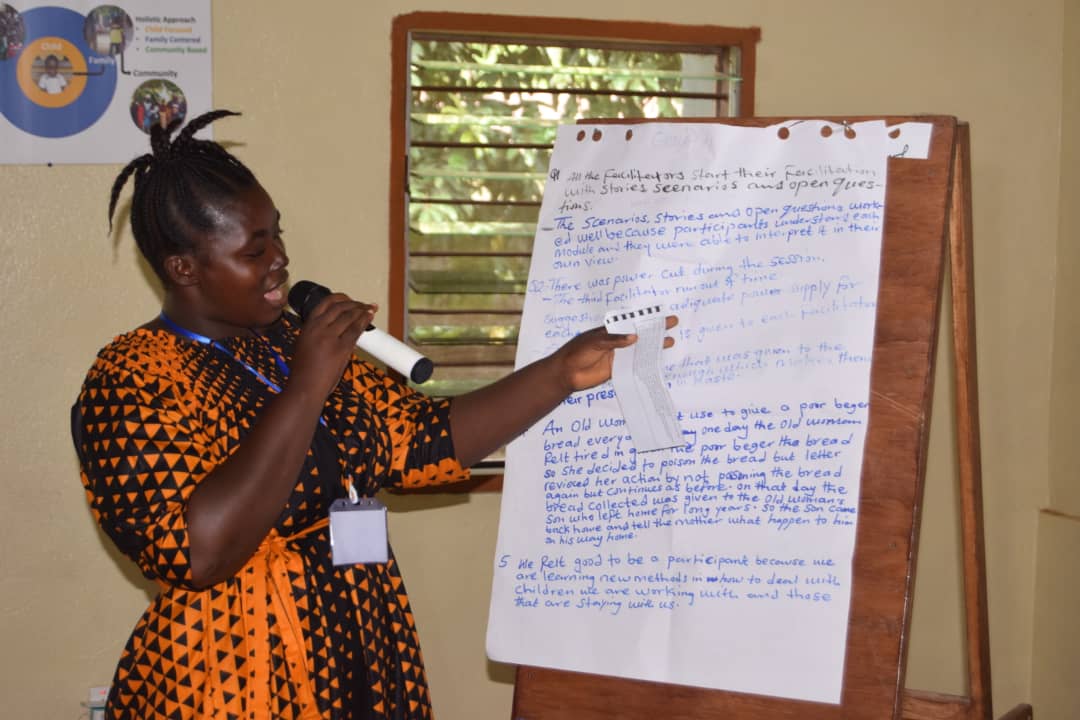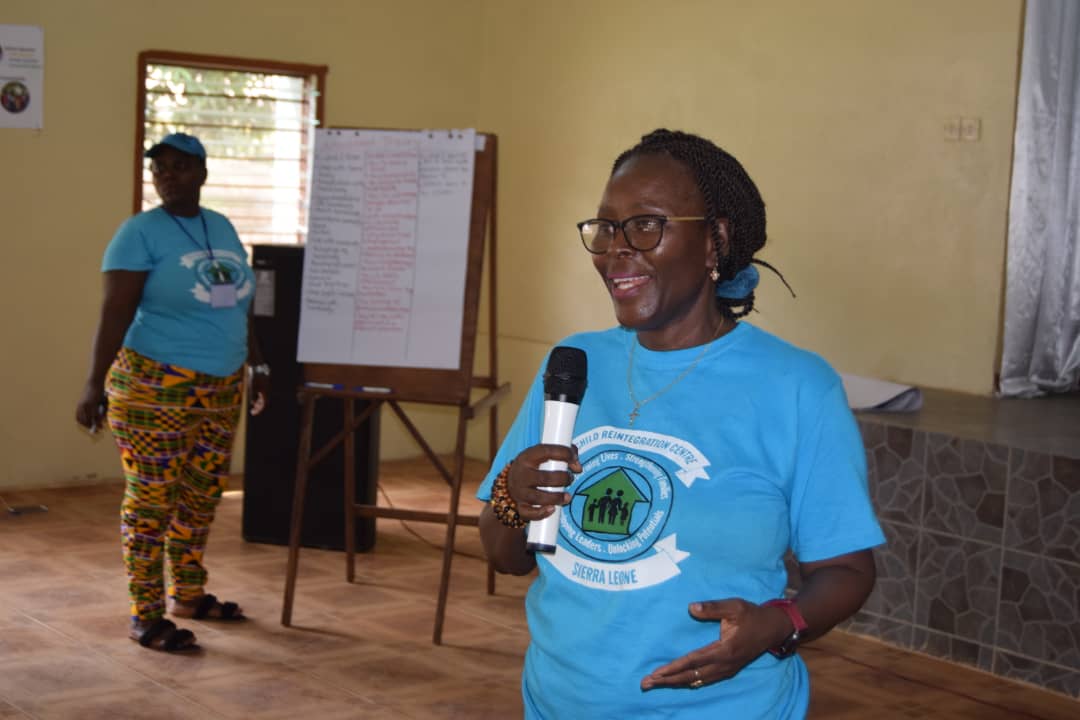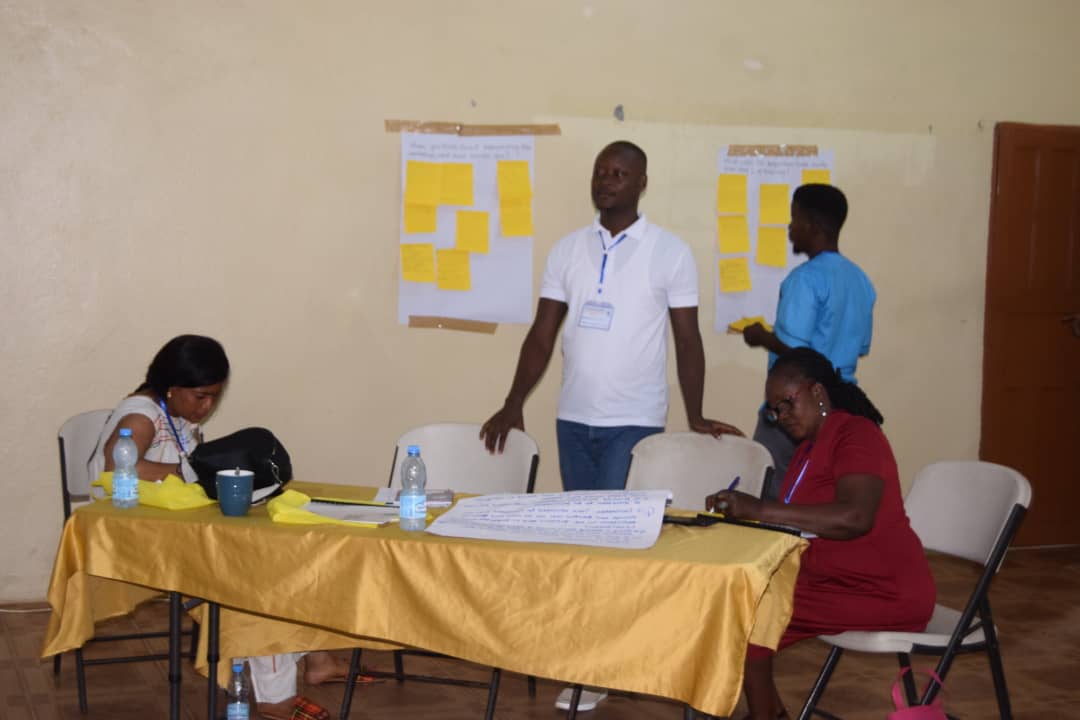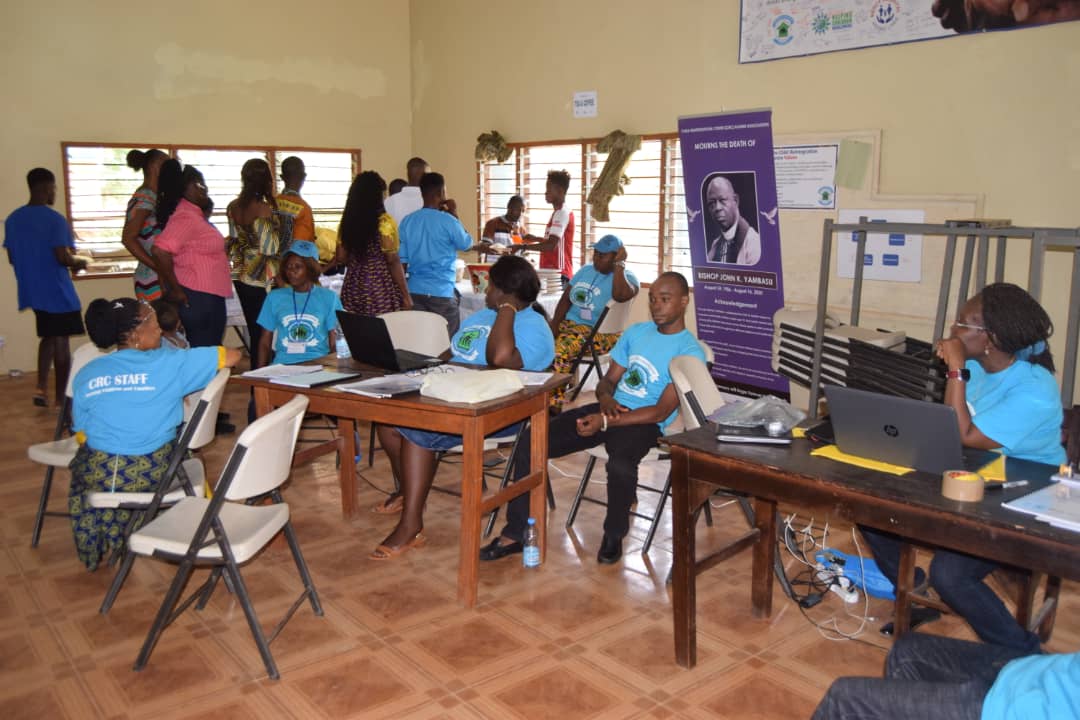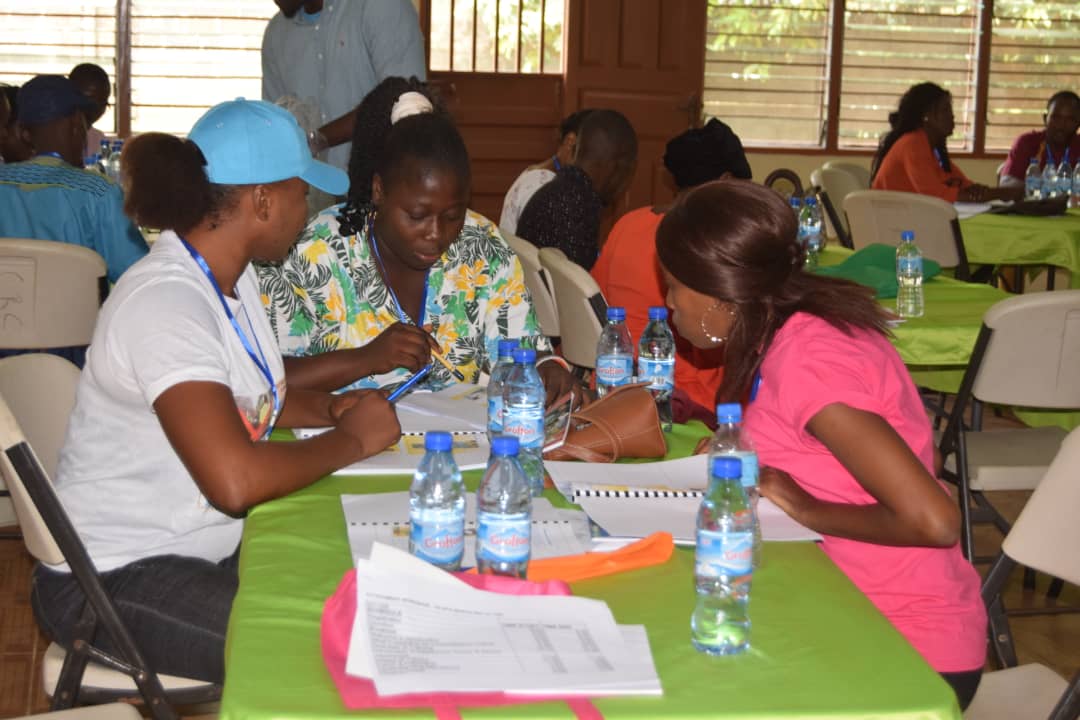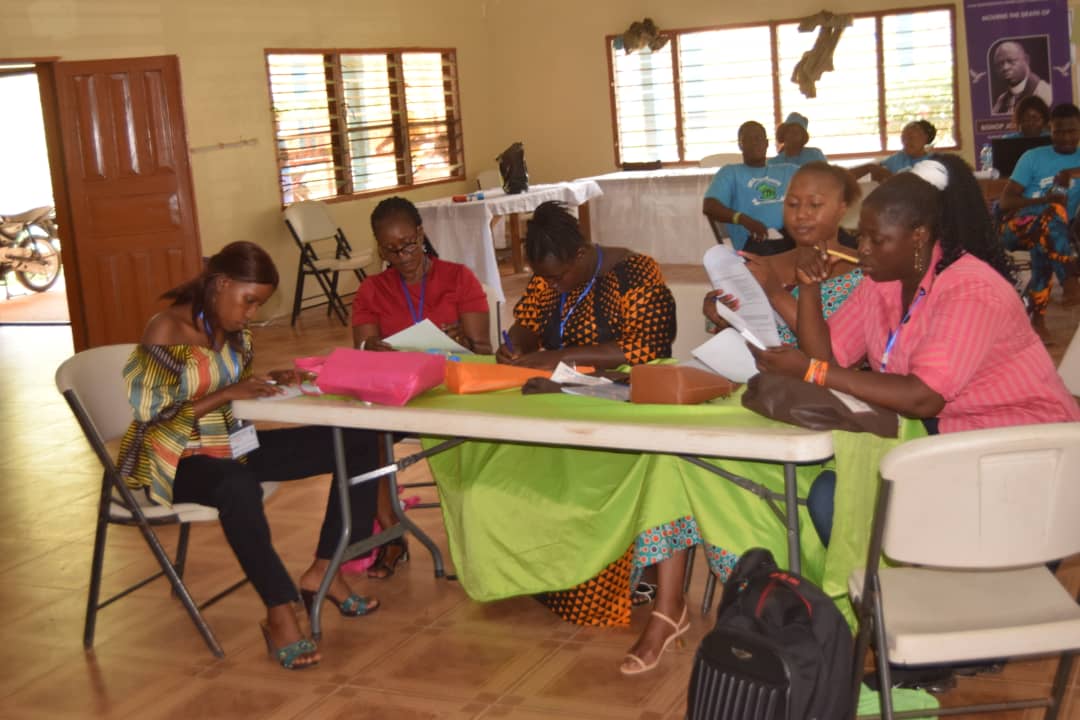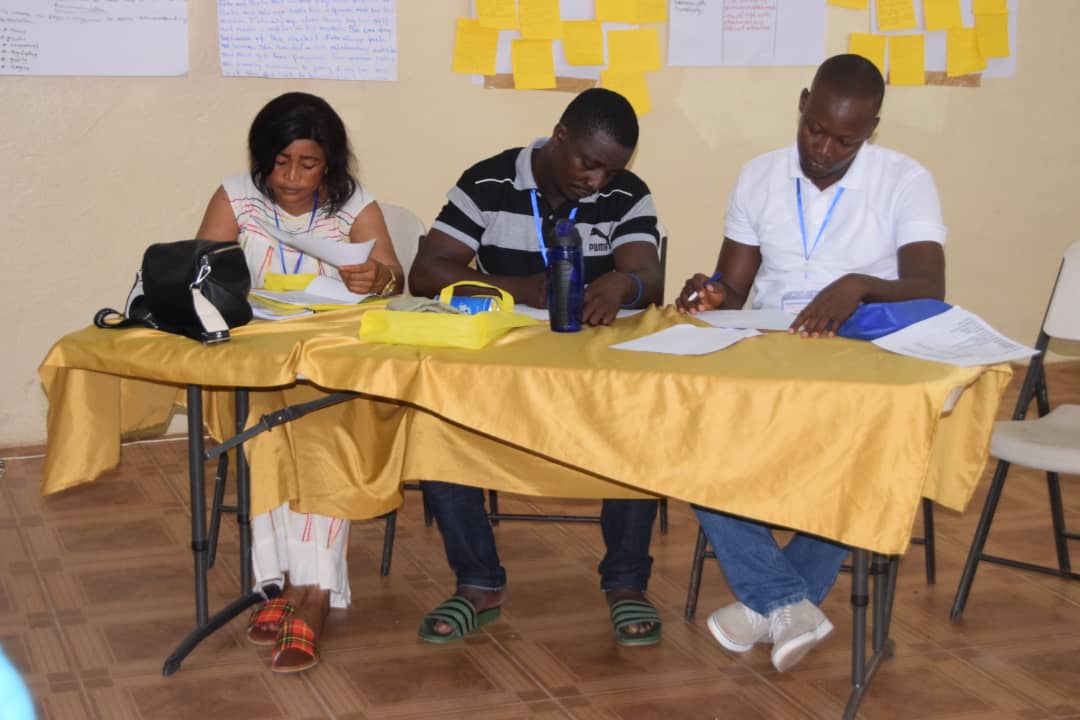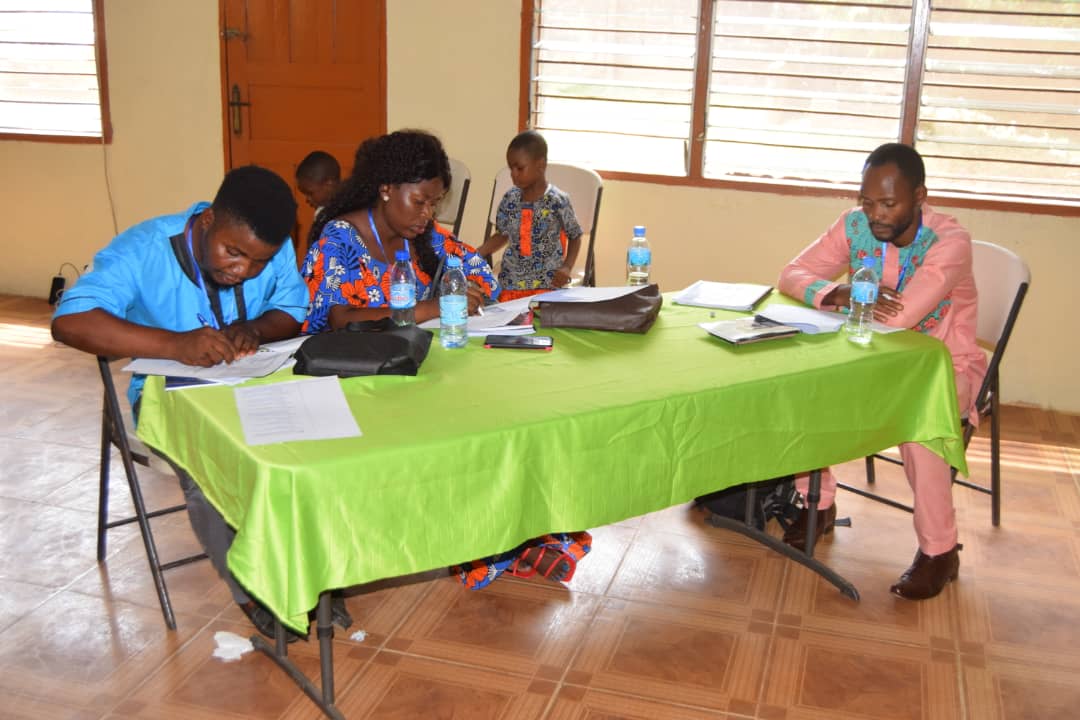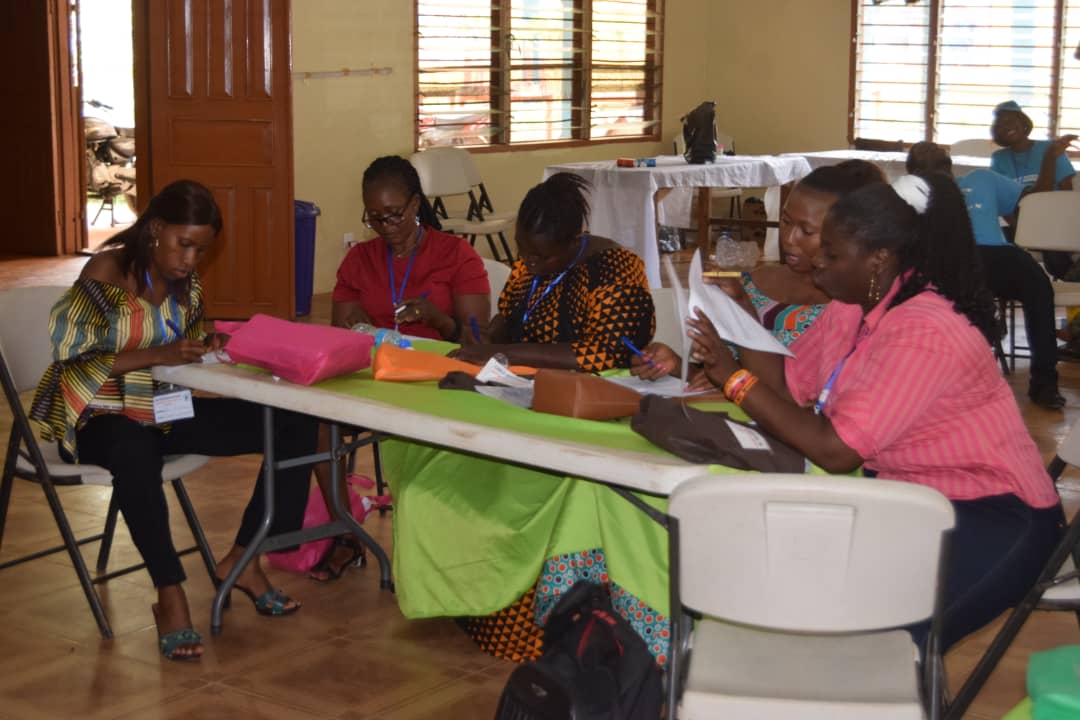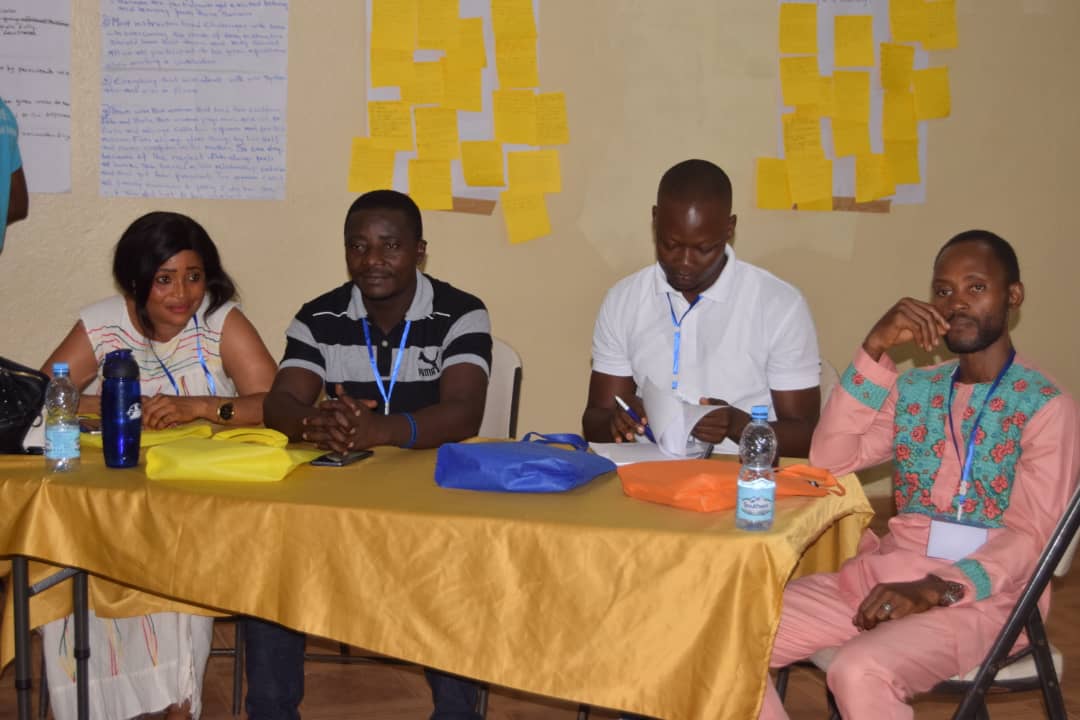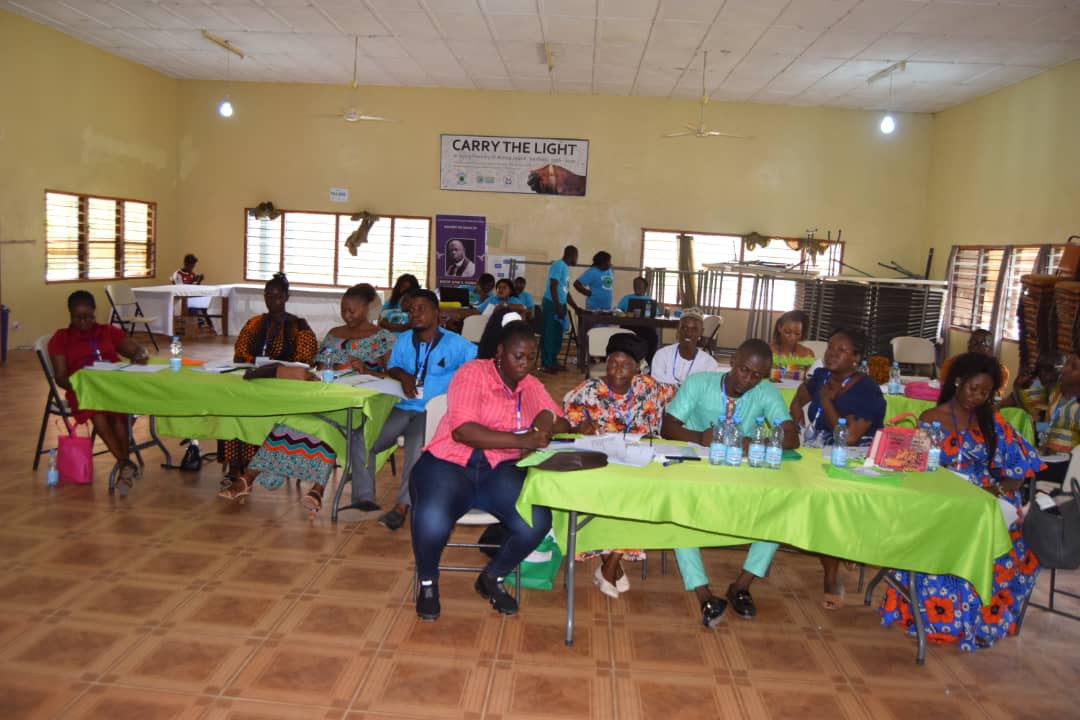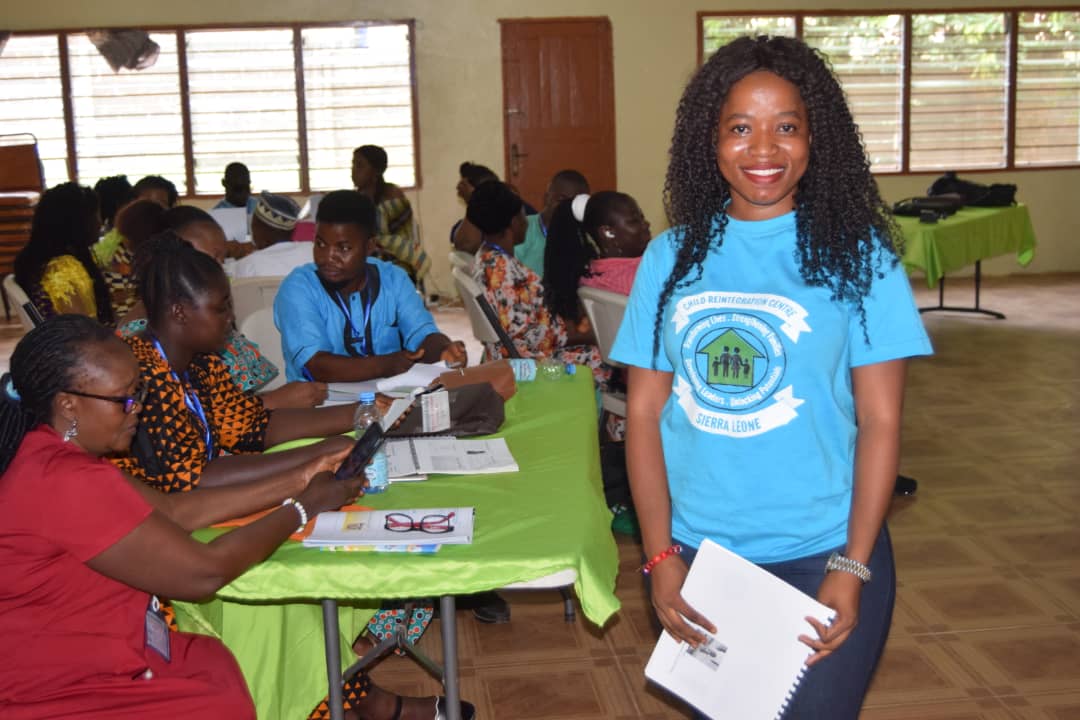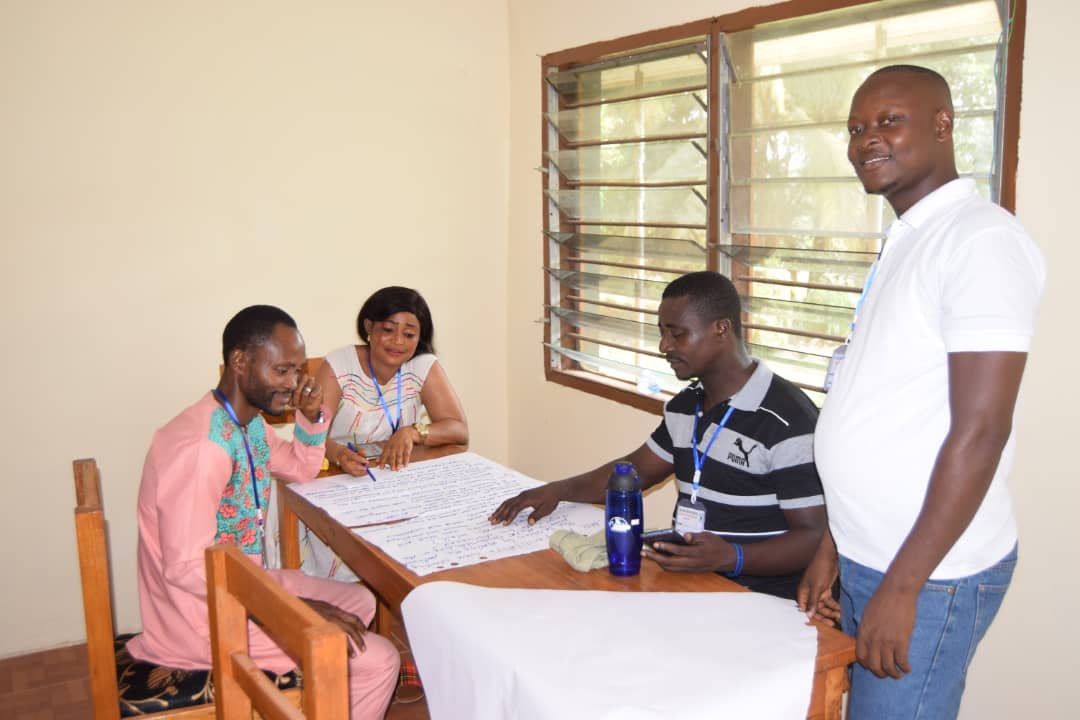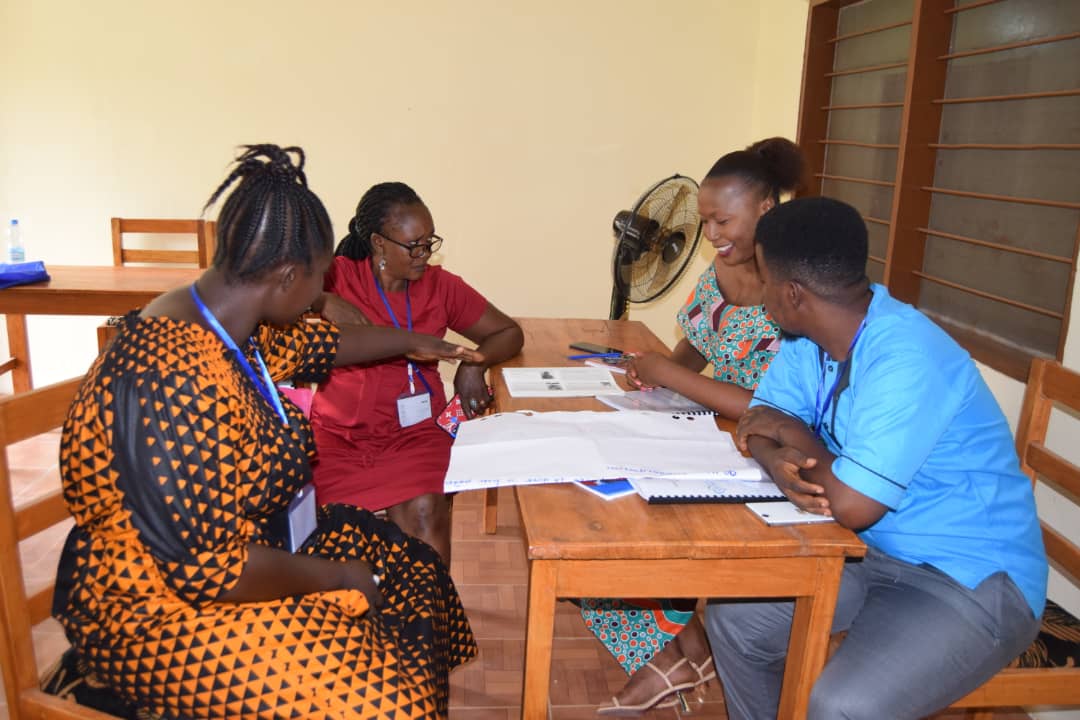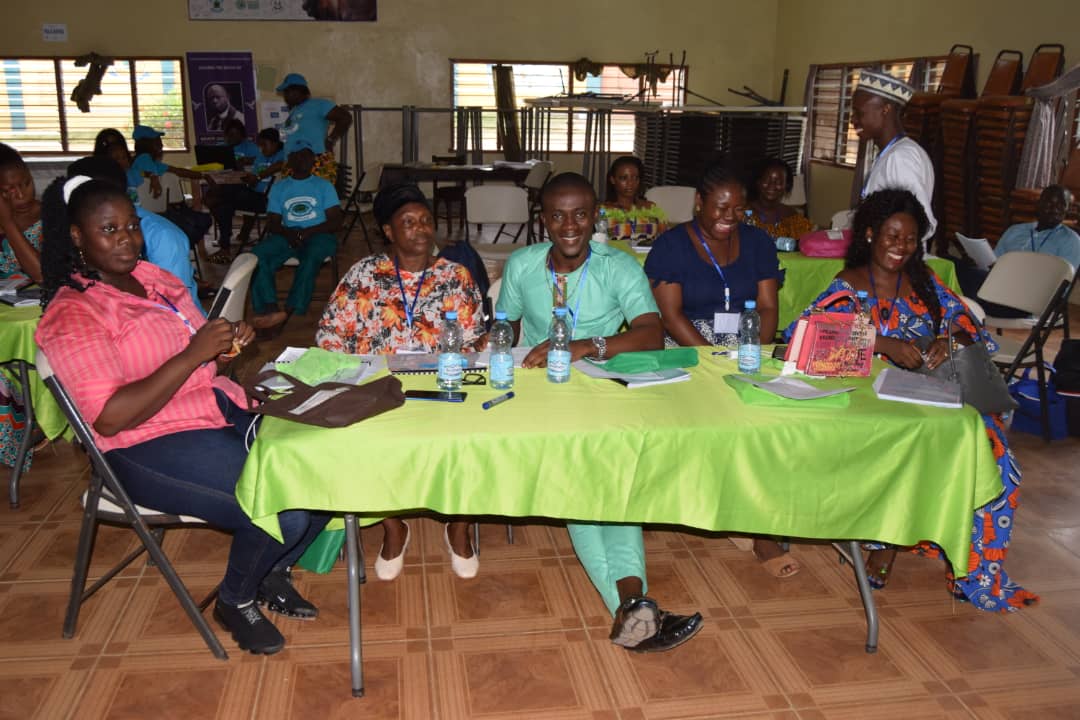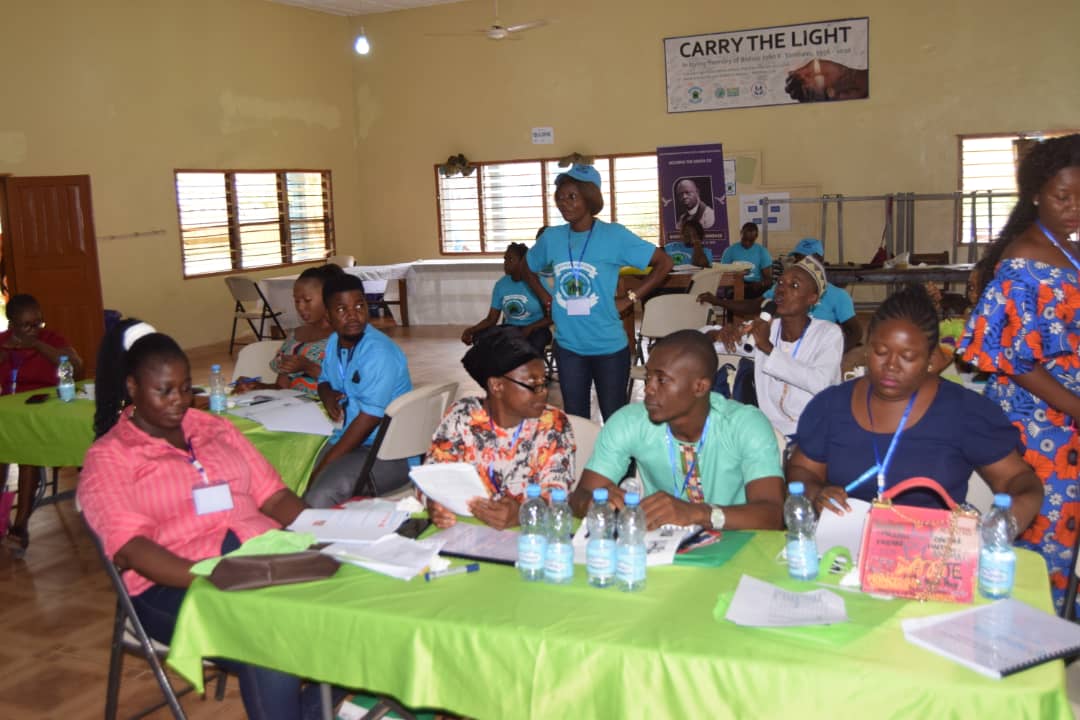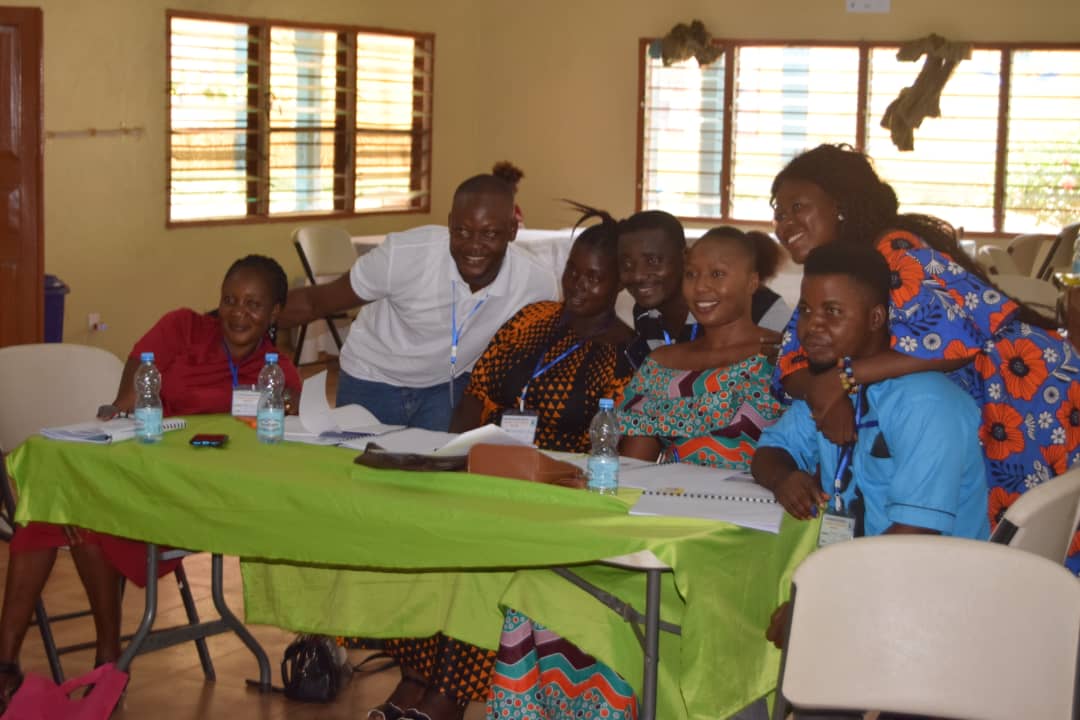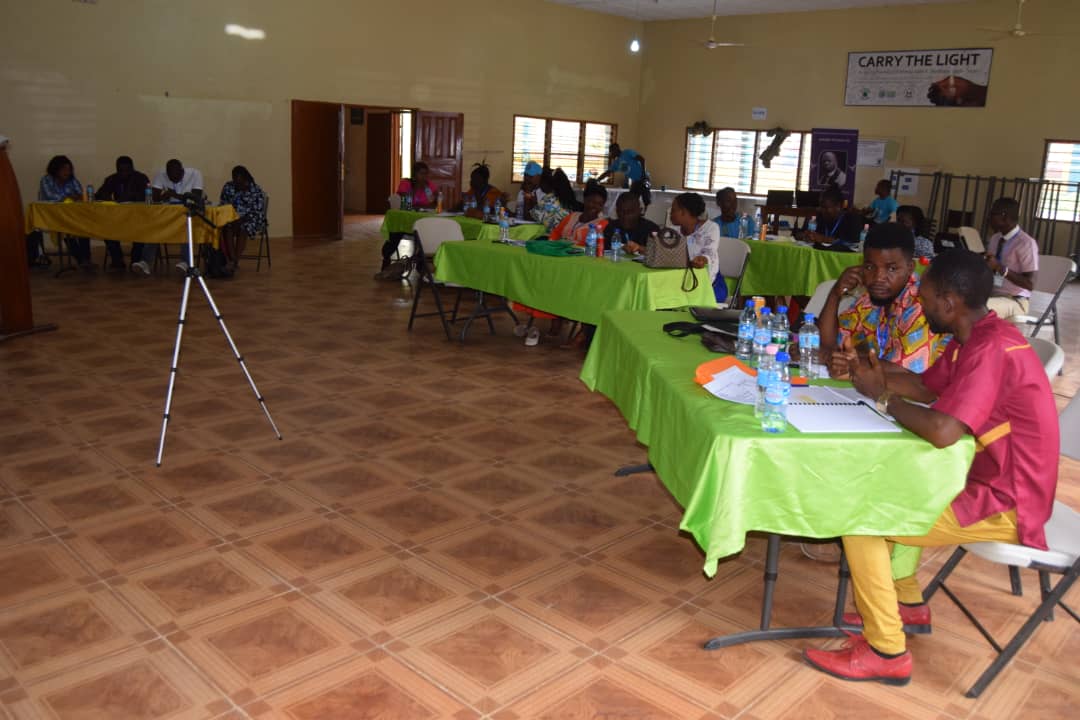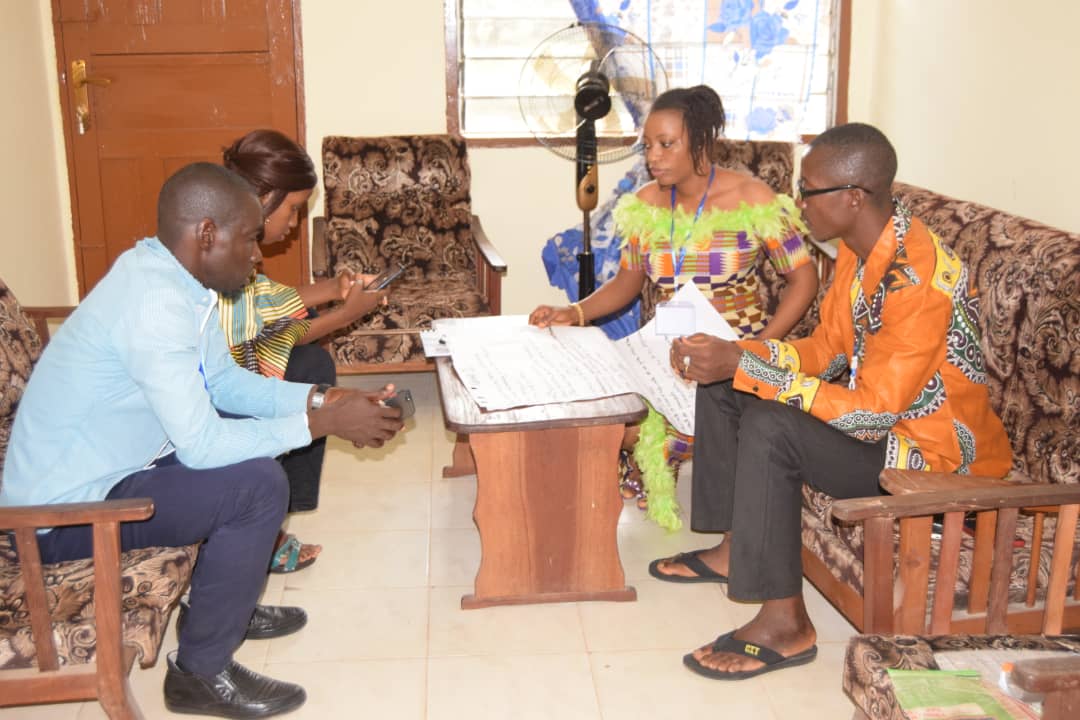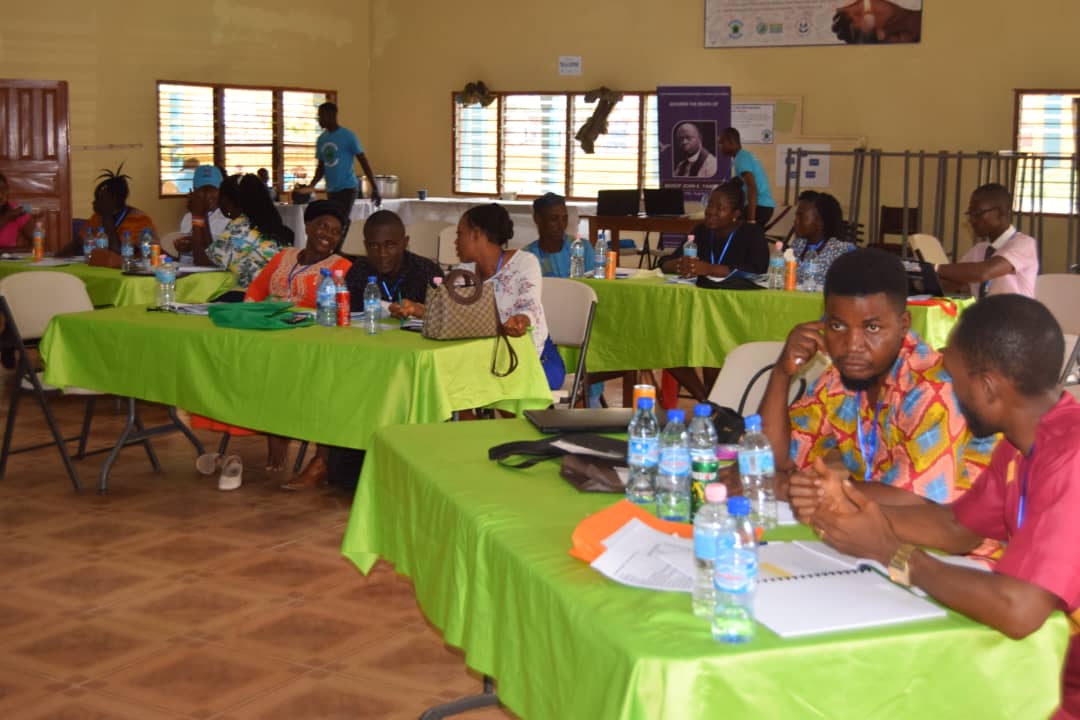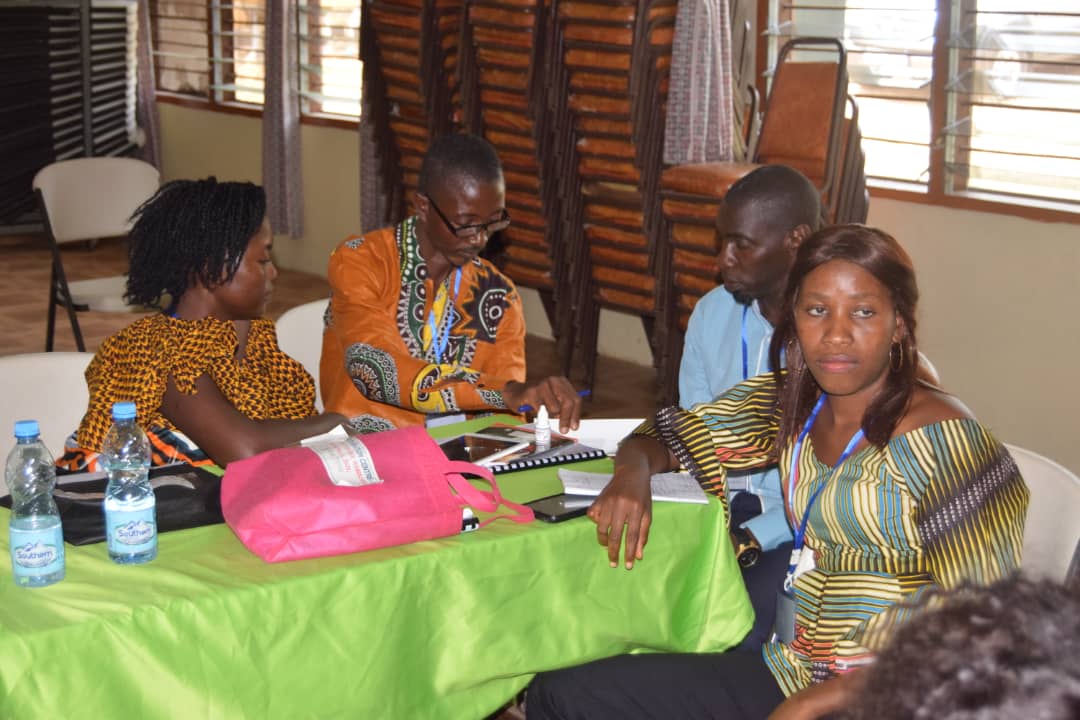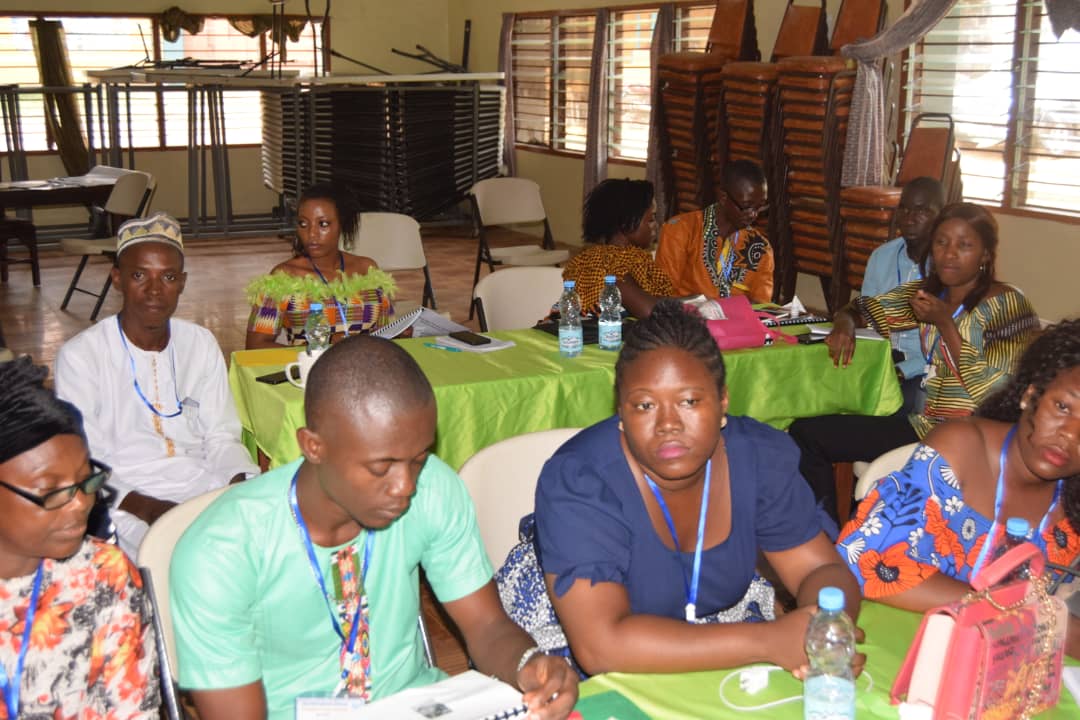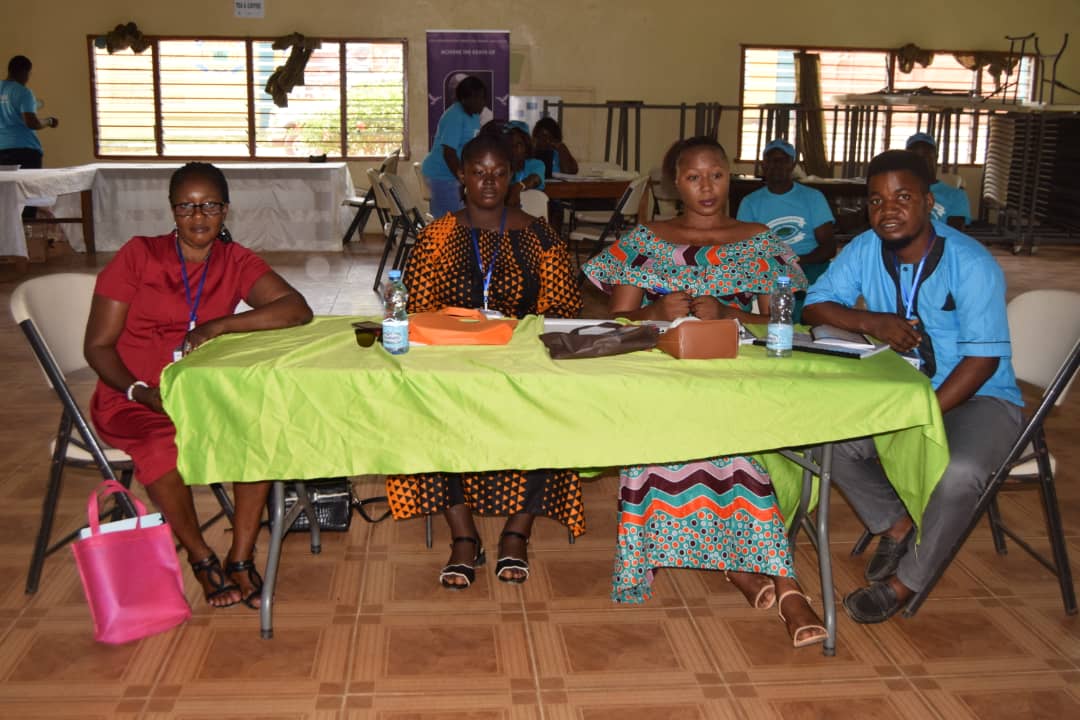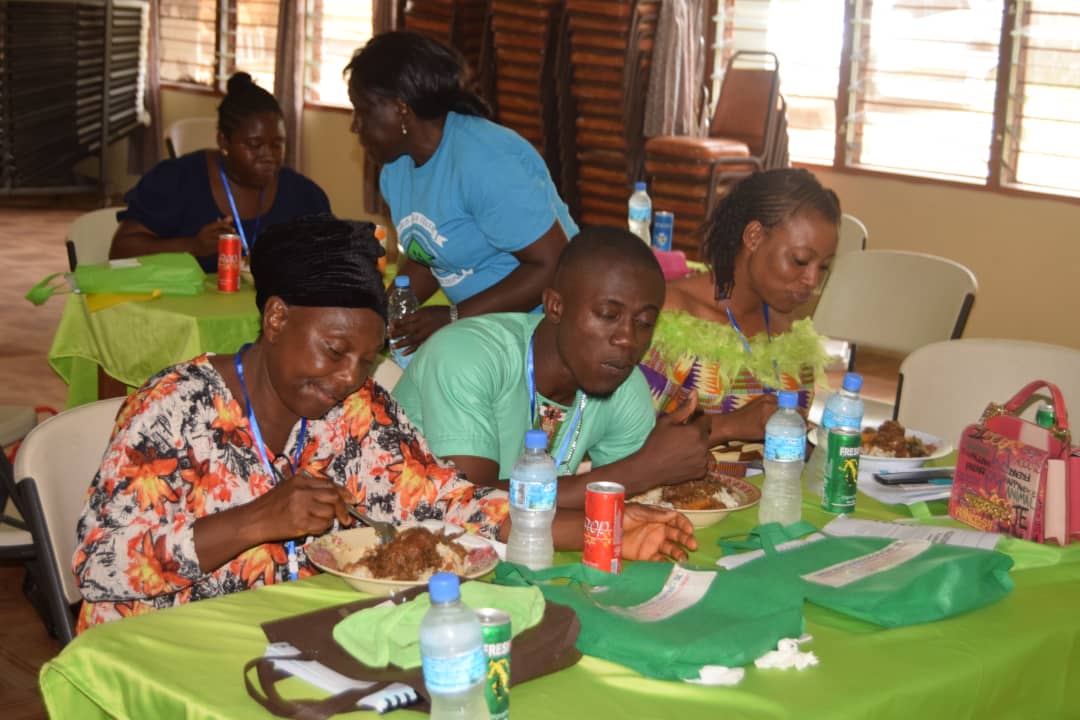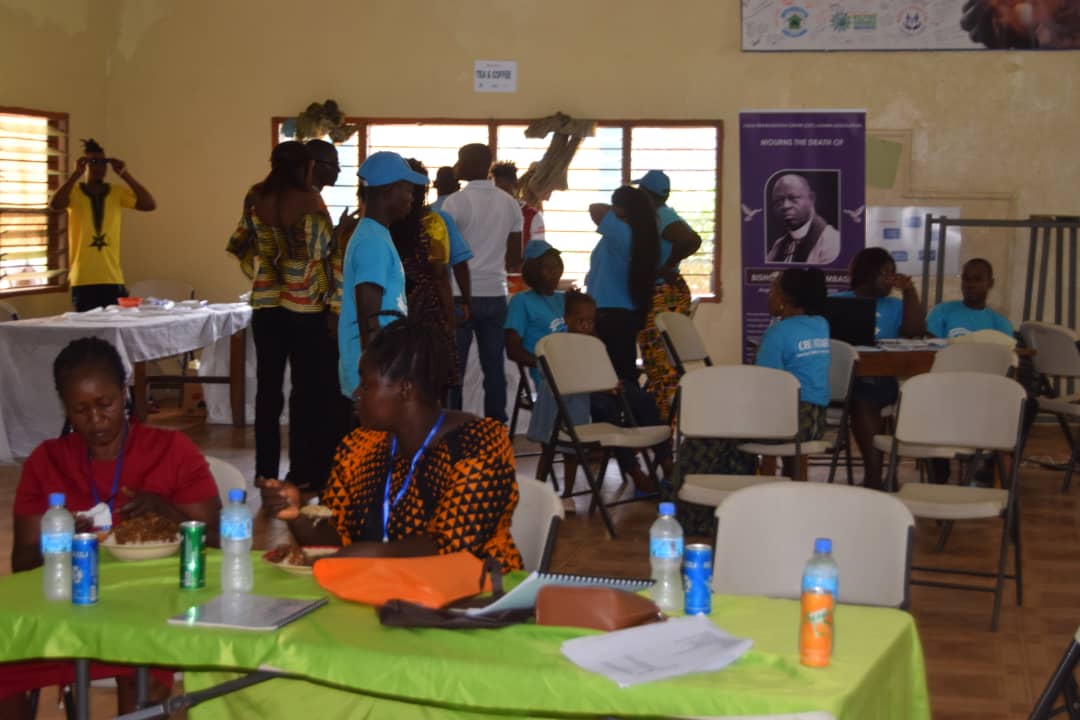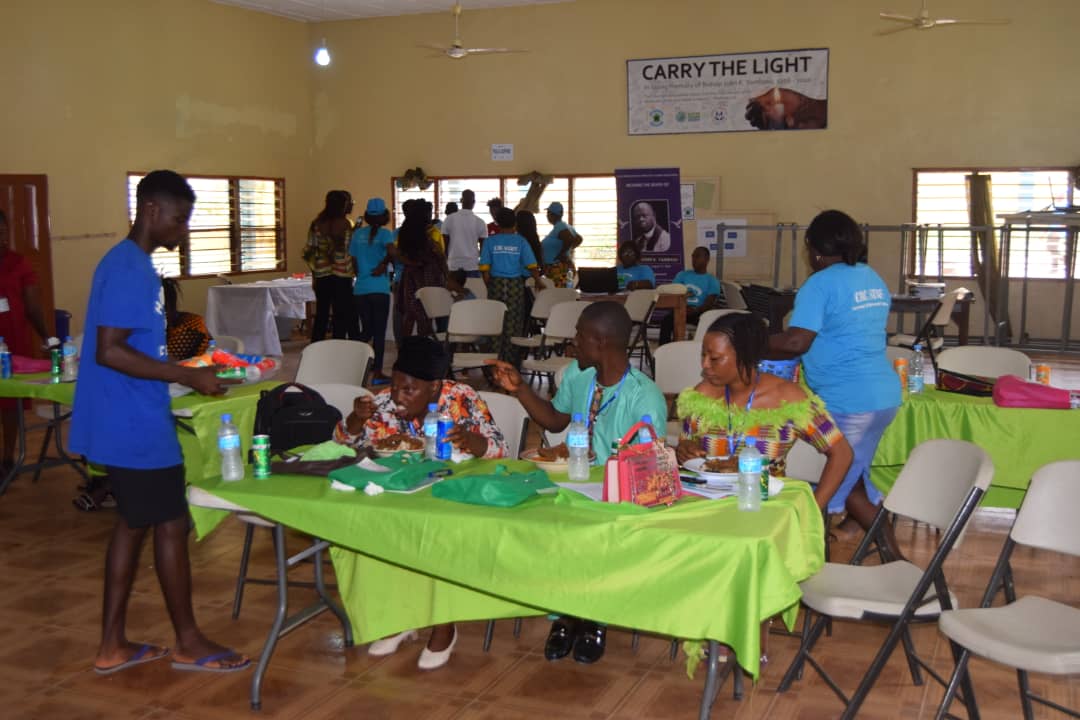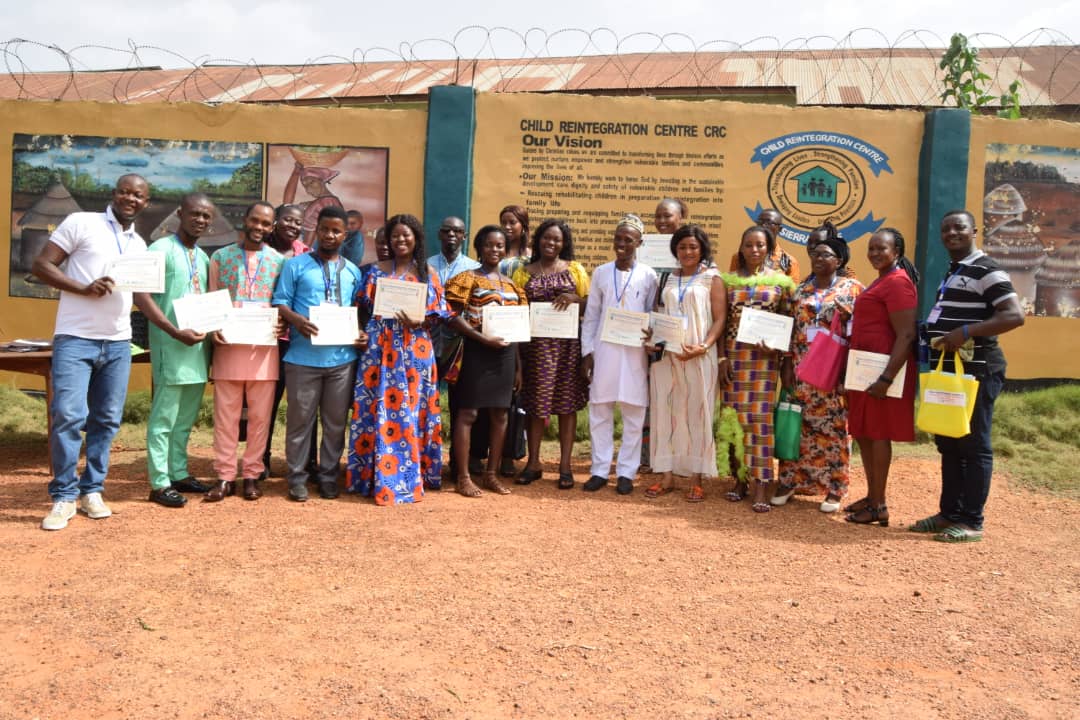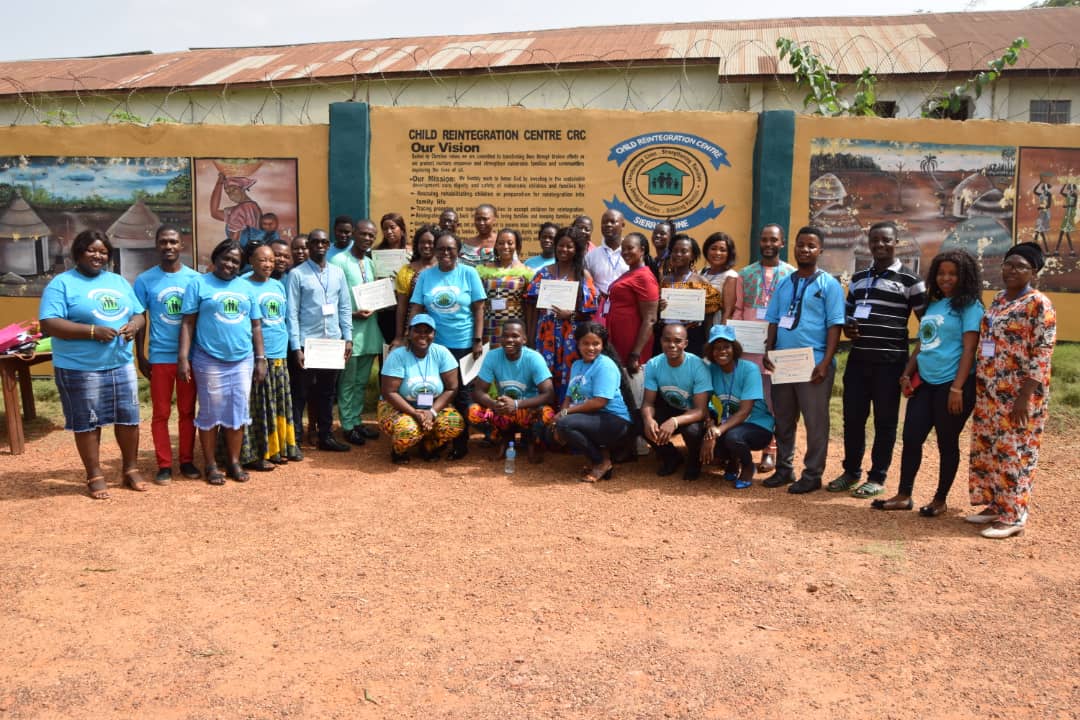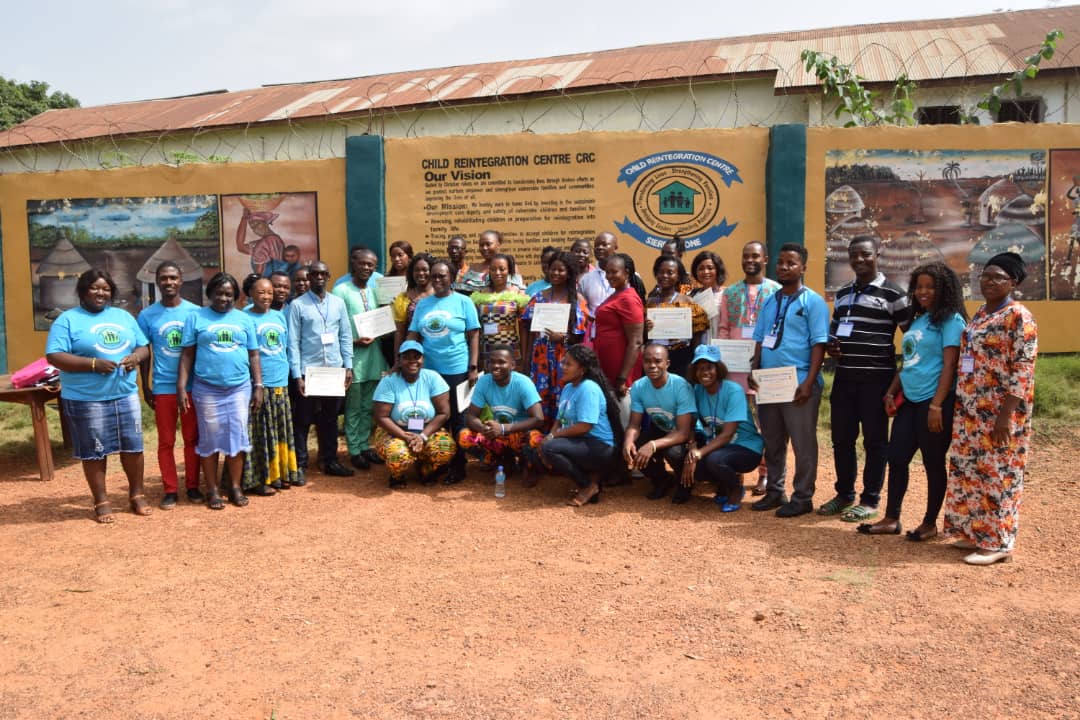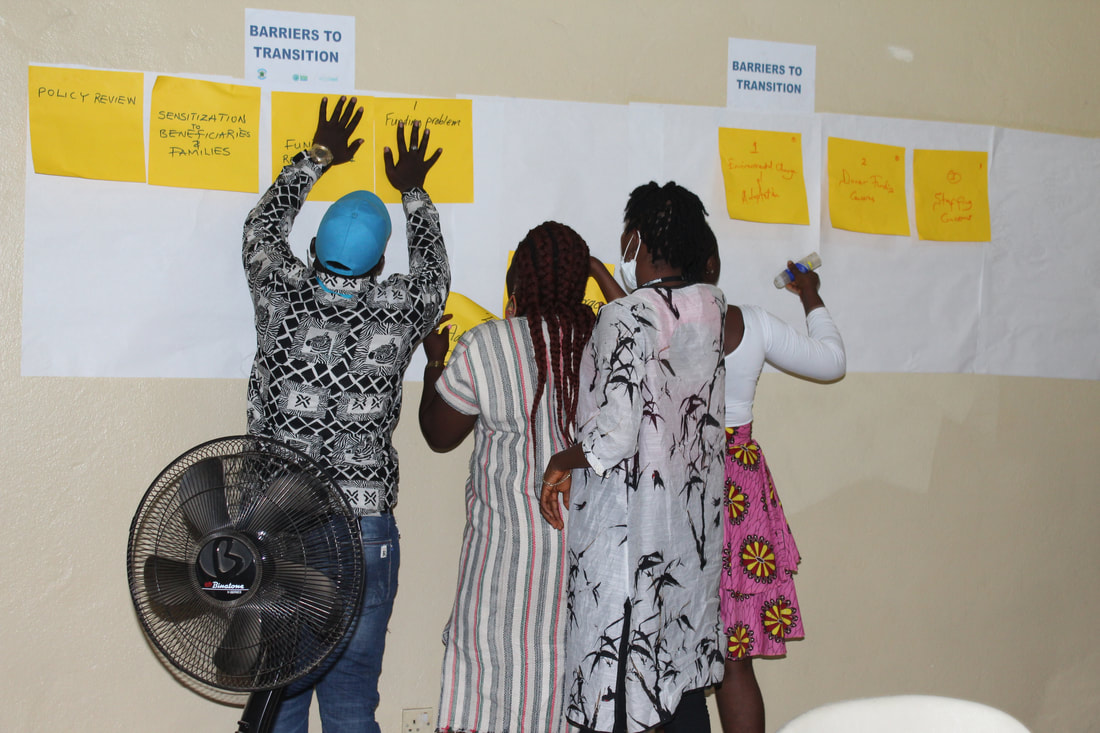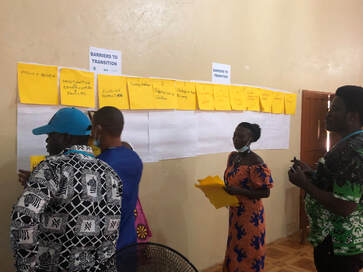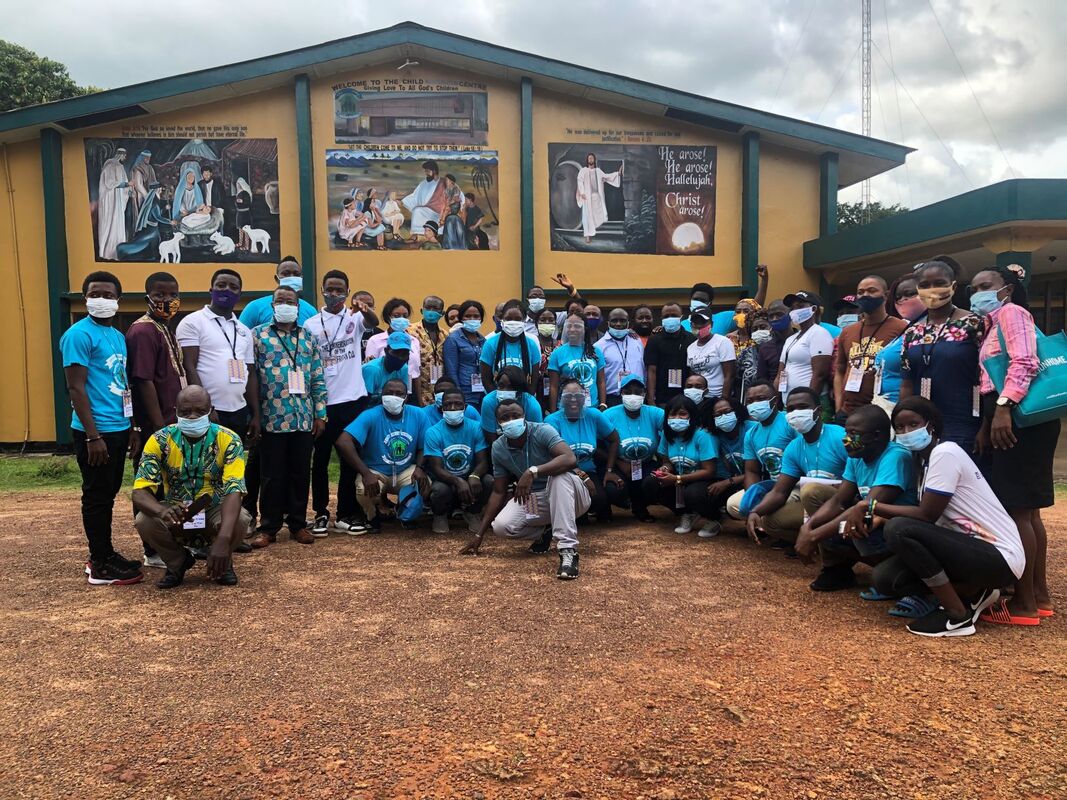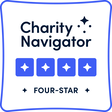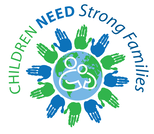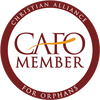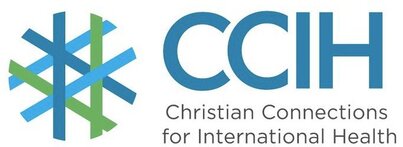|
The CRC has launched their new Attachment Theory “Train the Trainer” workshop, with the aim of helping child welfare organizations understand the impact of trauma on children, and learn how to help parents and caregivers in their programs develop healthy relationships with the vulnerable children in their care.
The Train the Trainer workshop was created to expand the impact of the AT Workshop that the CRC team uses to train caregivers enrolled in its program. The CRC hopes to offer this training to social workers in child welfare organizations all over Sierra Leone, so that the families in their care will have access to tools they can use to build stronger, healthier family relationships. The University of Maine and CRC collaborated to create the Attachment Theory curriculum three years ago for the orphanage staff, with plans to extend the training to caregivers as the CRC transitioned to a family care program. With this training, the CRC has trained 20 social workers who manage thirteen different organizations from Makeni, Pujehun, Kenema and Bo, who are now empowered to train their own caregivers. The potential is for Attachment Theory to positively impact children and families all across Sierra Leone. The Attachment Theory "Train the Trainer" workshop was the first opportunity for the CRC to host participants in the newly renovated onsite lodgings. Meals were also provided for the guests. David Musa, the CRC’s Transition Coaching and Mentoring Department Senior Consultant, led the Train the Trainer workshop. The workshop opened with a devotion by Lucy Jusu and welcoming remarks by CRC Director Olivia Fonnie, who thanked the participants for attending and assured them they would not regret their attendance. David took the participants through a demonstration of what it means to be a “Participatory Trainer.” The CRC case managers each taught a different topic related to the care of orphaned and vulnerable children. Imourana Bockarie provided a daily recap of the concepts taught in the workshop. At the end of the training, each participant was awarded a certificate, and provided with a flash drive with all relevant materials, as well as hard copies of the training manual and workbook to take home. Workshop participant Vanessa said that "every module was of great importance, not only to my organization but also to my personal life. I only ask that the workshop time be extended the next time." The CRC is considering making future workshops longer to give participants more time to engage with the material. Participant Dennis said, "I will use what I have learned for the children in our orphanage to build more trust, confidence, and love." KEY WORKSHOP TOPICS AND FACILITATORS:
Scenes from the workshop:
1 Comment
CRC's inaugural 2-Day Workshop praised by Sierra Leone government, participating organizations10/21/2020 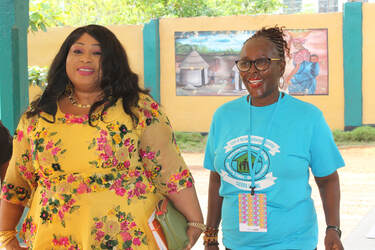 Minister Manty Tarawalli and CRC Director Olivia Fonnie. Minister Manty Tarawalli and CRC Director Olivia Fonnie. Submitted by David T. Musa, Senior Consultant to the Training, Coaching and Mentoring Department The Child Reintegration Centre's new Transition Coaching and Mentoring Department (TCM) successfully hosted the first 2-Day Workshop on Family Reintegration in collaboration with 1MillionHome and Helping Children Worldwide. Fifty practitioners and government leaders attended to learn how to move orphaned and abandoned children out of institutions and place them back into families, and help those families become stable and self-sufficient. Sierra Leonean Minister of Gender and Children’s Affairs Manty Tarawalli opened the workshop with her commitment to collaborate with the CRC to reintegrate children with families, both from the streets and institutions in Sierra Leone. UMC-SLAC Dean of Cabinet Rev. Francis B. Charley offered the opening prayer and a statement on behalf of the conference. Minister Tarawally thanked the CRC for helping other organizations transition to a family-based model of care that will benefit not only the child, but the family. She said that this is the one of the priorities of the Ministry under the new government. “I feel honored to stand here as the minister and looking forward to continue working with all partners to help create a truly effective children’s protection system,” she concluded. Four key presentations were offered on day one by the CRC staff and by HCW representative Mohamed Nabieu. One of the activities that captured the minds of participants was the "Barriers to Transition." In this activity, everyone was asked to make a list of barriers and challenges they think they will face when transitioning from a residential care model to family/community based care model, and these barriers were posted on the gallery for reference on day two. After going through this presentation, participants were amazed to see that most of what they have been seeing as barriers can be overcome, once they are determined to make the transition. The activity concluded on day two when the participants went through the gallery to put a sticker on what they no longer see as a barrier. Mr. Kanneh from SOS Children’s Village observed that "Our donors have not thought of changing our model of care to a family based care model, but when we the staff think of such, we have this constant fear of losing our jobs if the orphanage is closed. But after going through this presentation I have the conviction today that we will be open to more opportunities once we transition, and this will be good for the children as well."
The presentations continued on day two with the "3 R's:" Reintegrate and Reunify, Repurpose and Refocus, co-presented by CRC Director Olivia Fonnie and TCM Department head David Musa. After the 3 R's presentation, Rev. Sahr Yiaba of Love One Another said, "We now know that the best place to raise a child is in the family or community, wherein the entire family benefits from whatever support is given from an institution. And we hope to work strongly together to achieve this common goal together.” At the end of day two, participants were asked to suggest ways of staying together as a community of practice. Various ideas were suggested such as forming a Whatsapp group, regular phone conversations, meetings at suggested times, and connecting to the TCM department for coaching opportunities. This workshop concluded with evaluation forms by participants, snapshots, distribution of TCM flyers and distribution of transportation refunds. The TCM department will continue connecting with the participants and coaching them through the transition process. |
Follow us on social media
Archive
July 2024
Click the button to read heartfelt tributes to a beloved Bishop, co- founder of our mission!
Post
|
Helping Children Worldwide is a 501 (c) 3 nonprofit organization | 703-793-9521 | [email protected]
©2017 - 2021 Helping Children Worldwide
All donations in the United States are tax-deductible in full or part. | Donor and Privacy Policy
©2017 - 2021 Helping Children Worldwide
All donations in the United States are tax-deductible in full or part. | Donor and Privacy Policy

